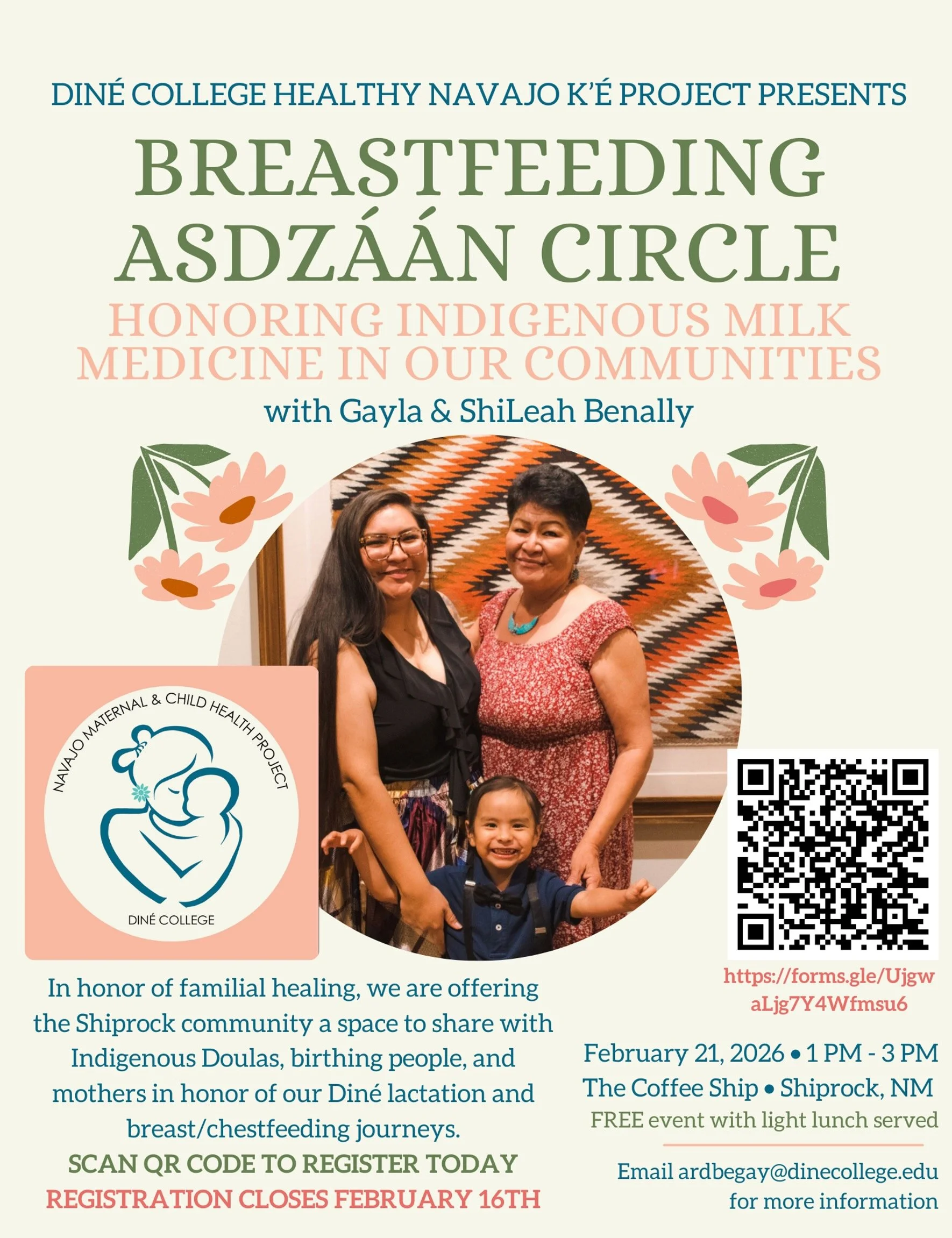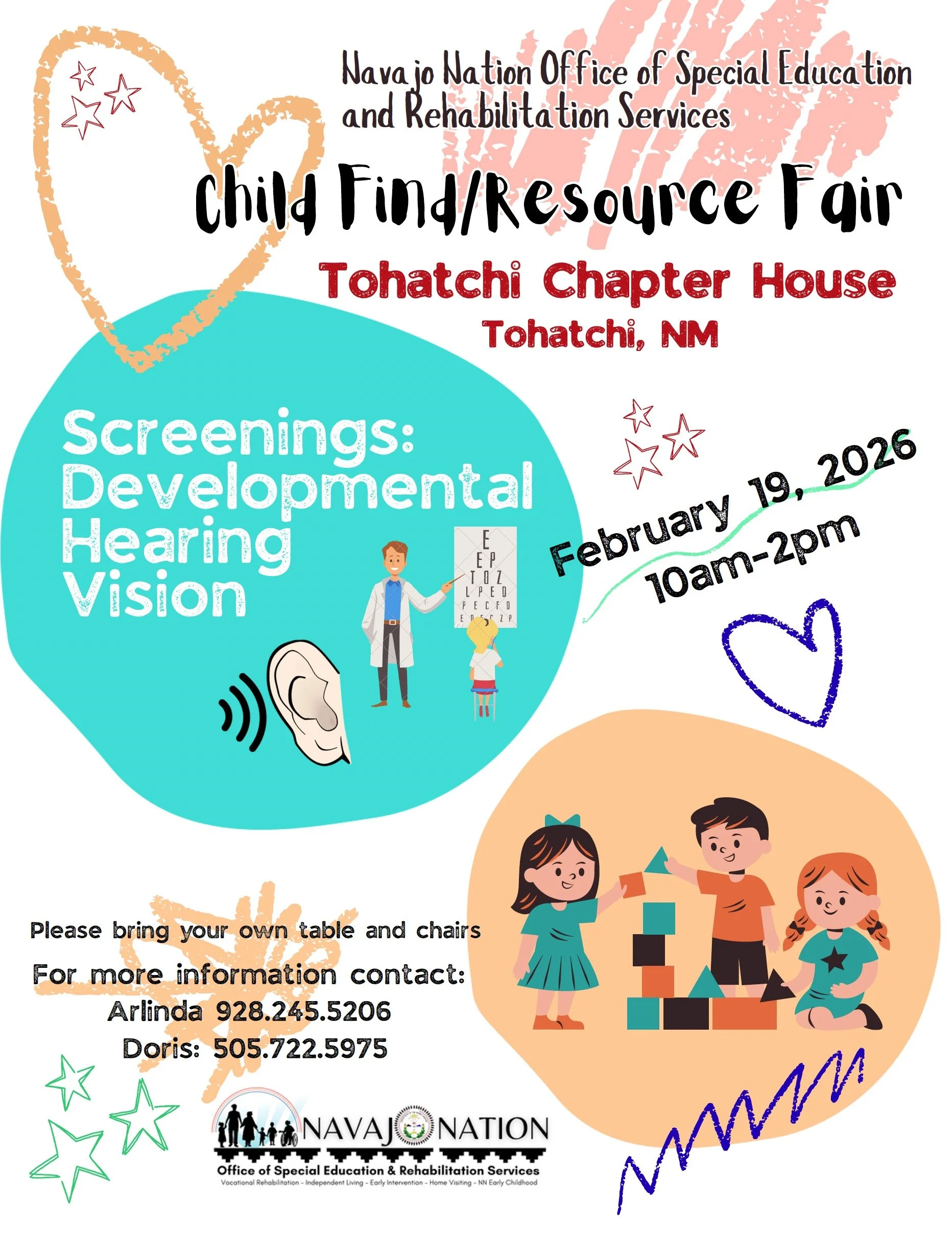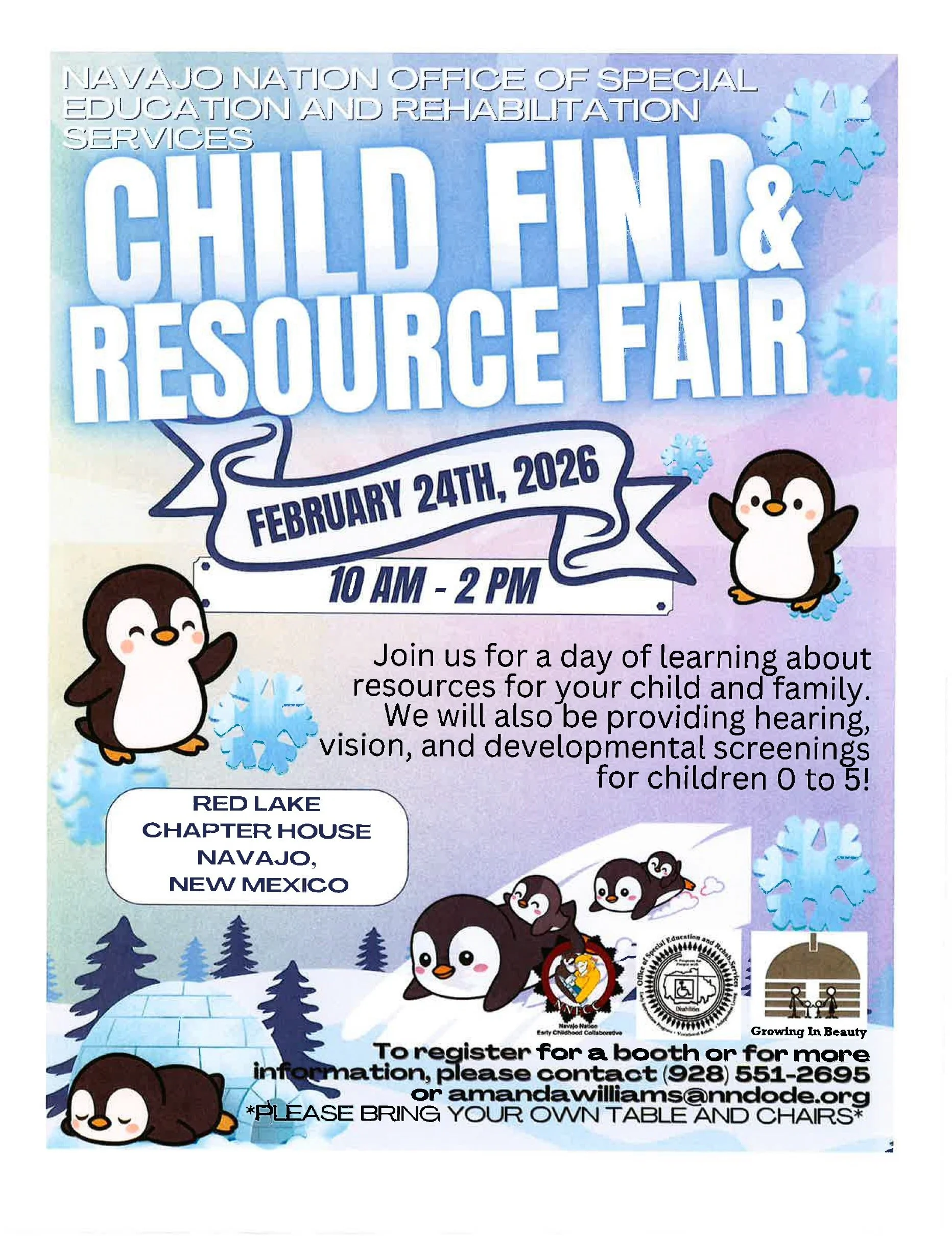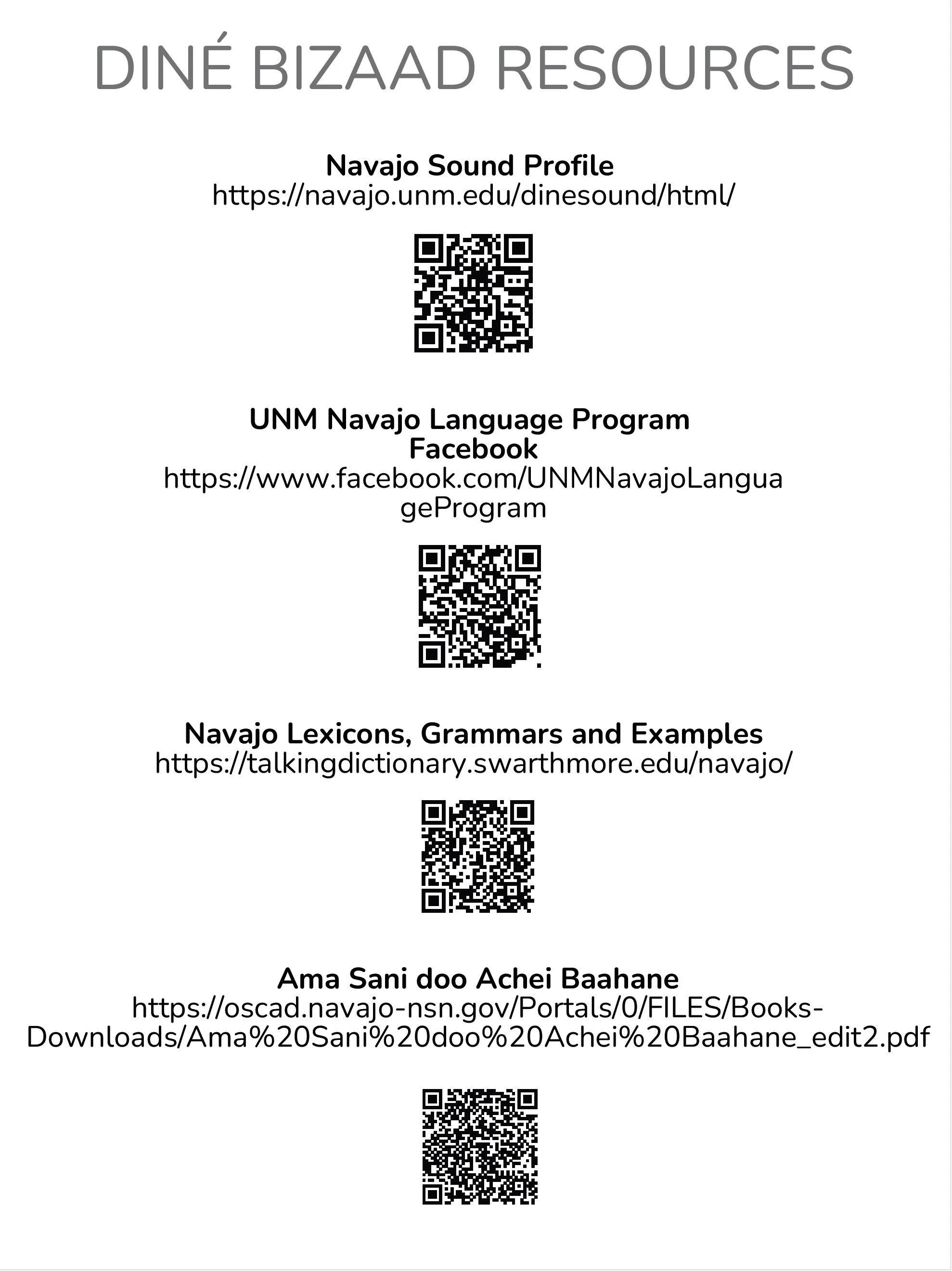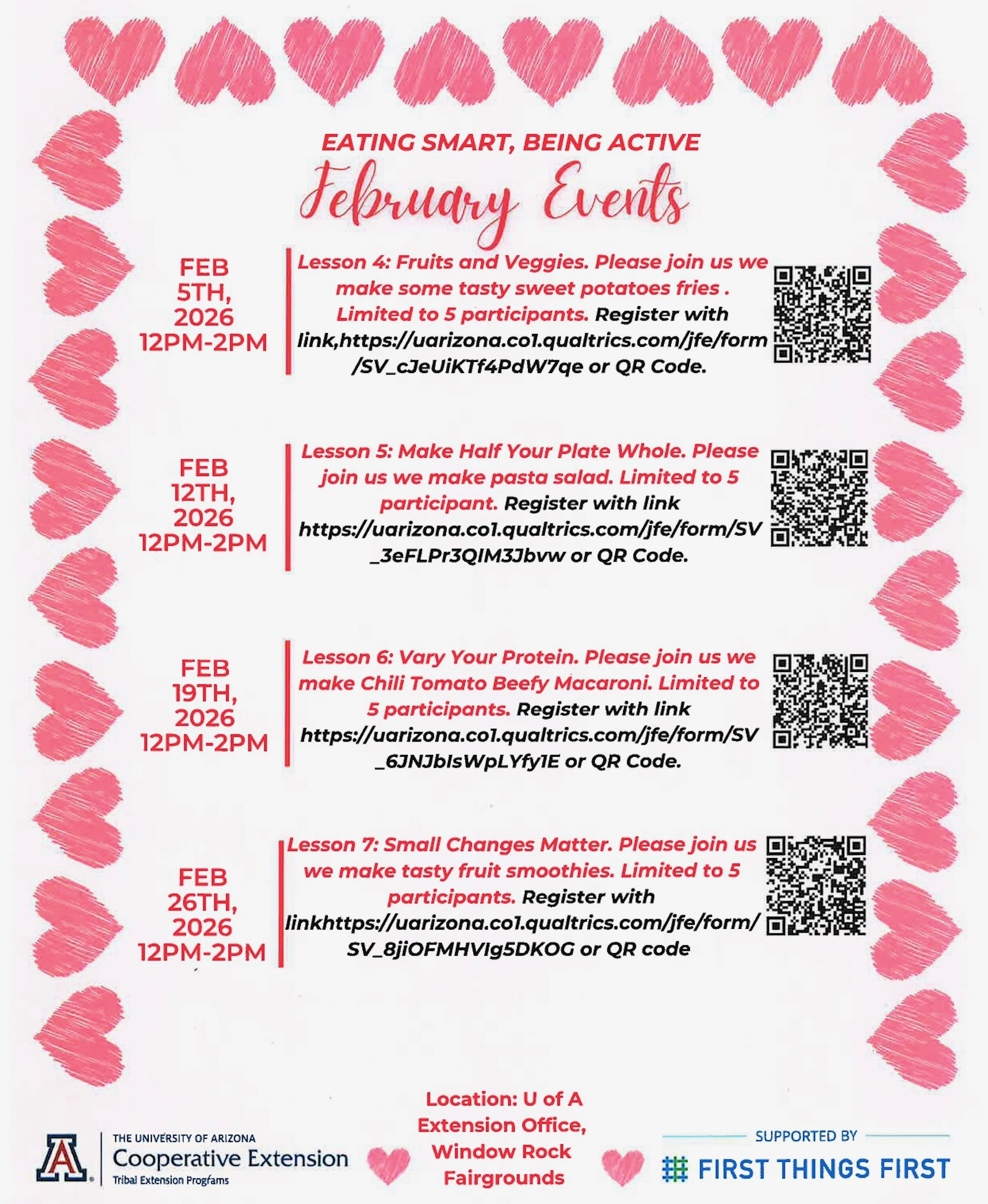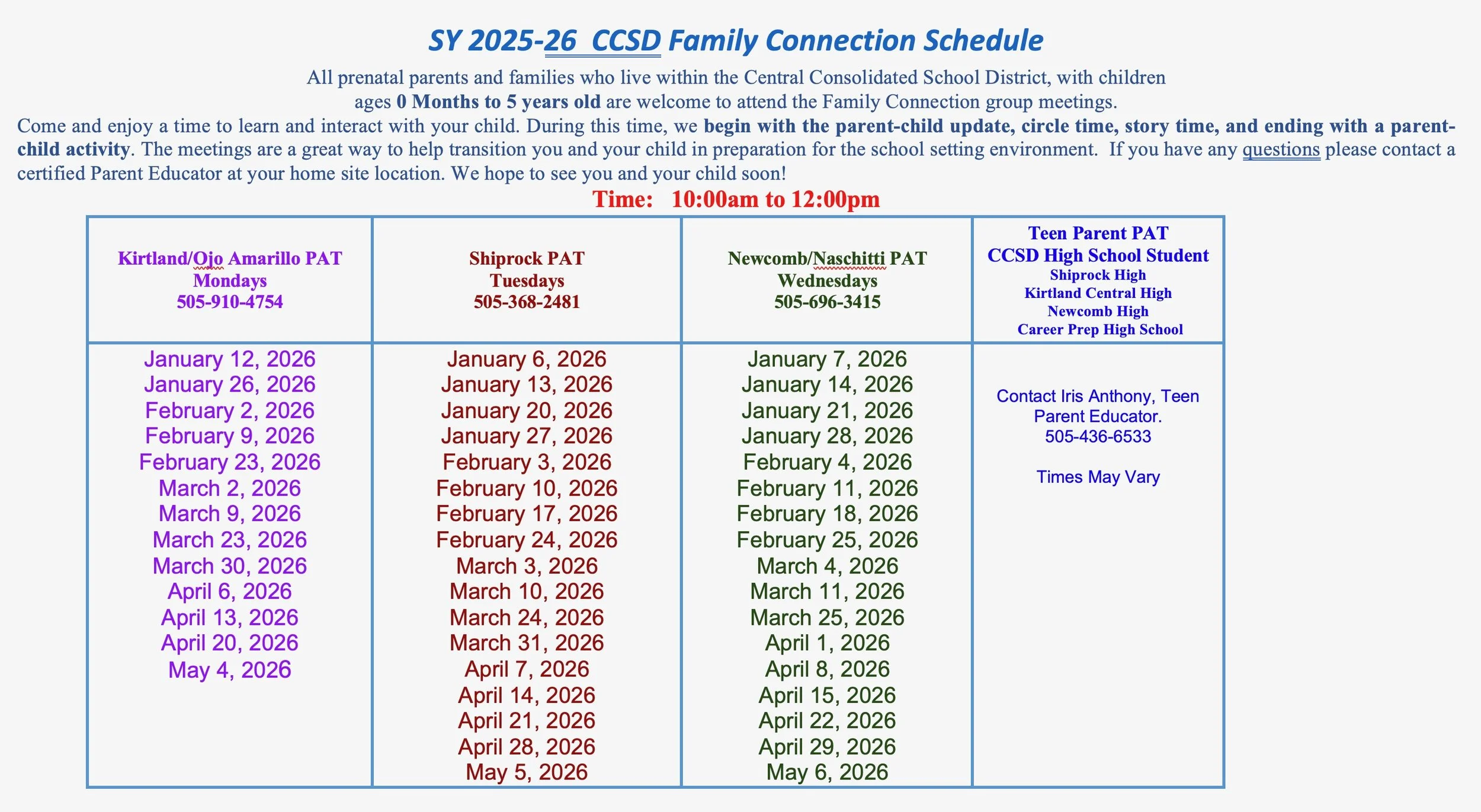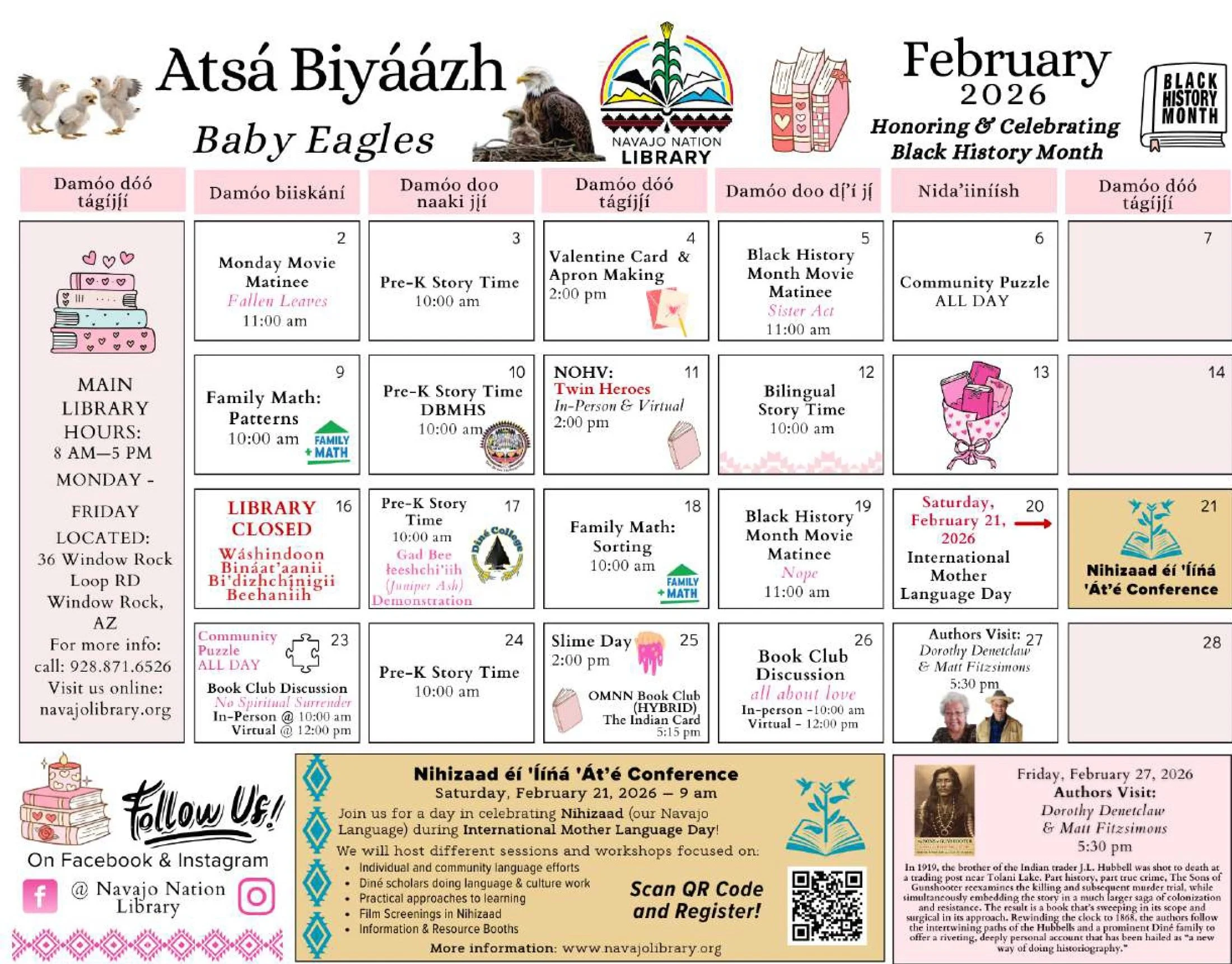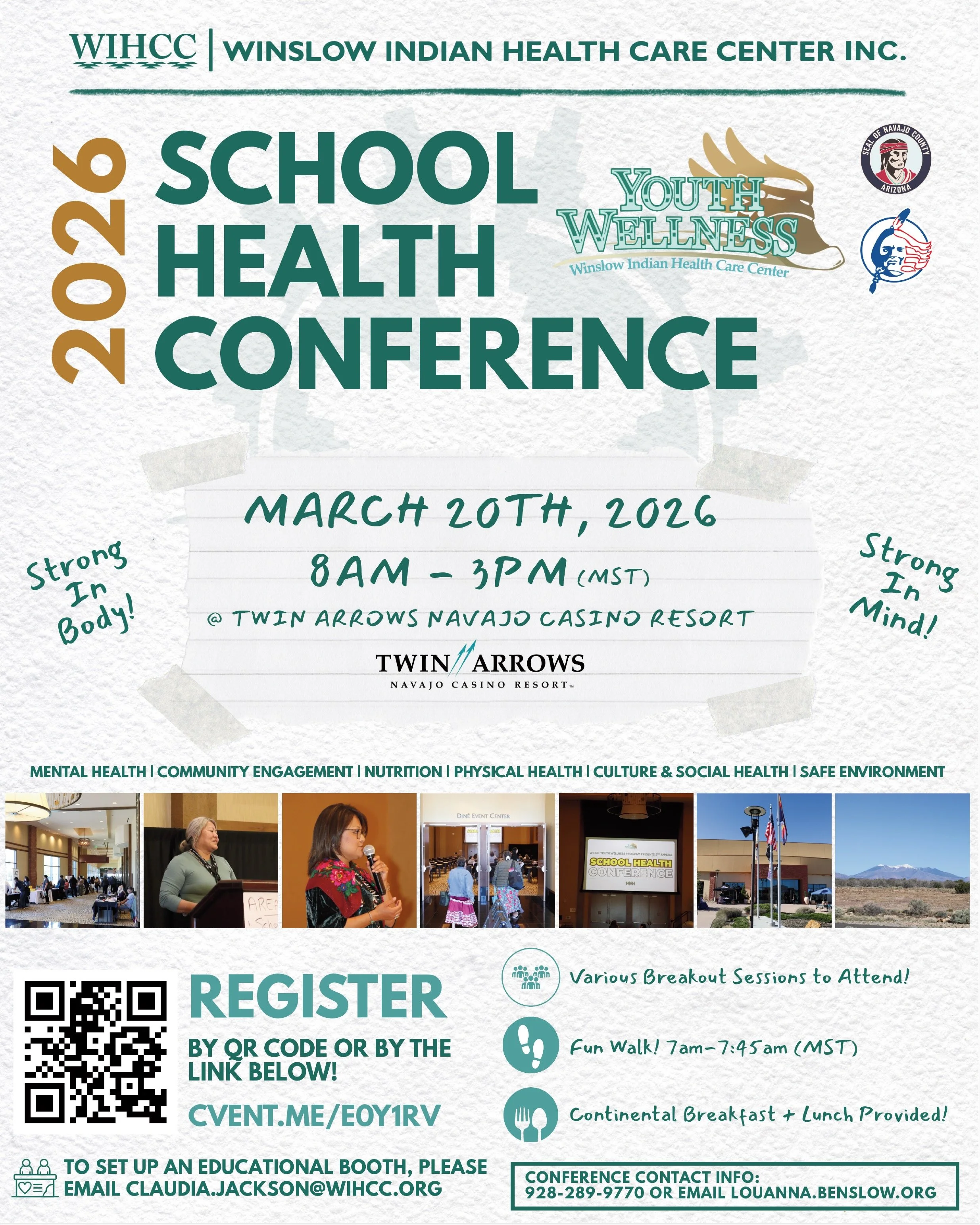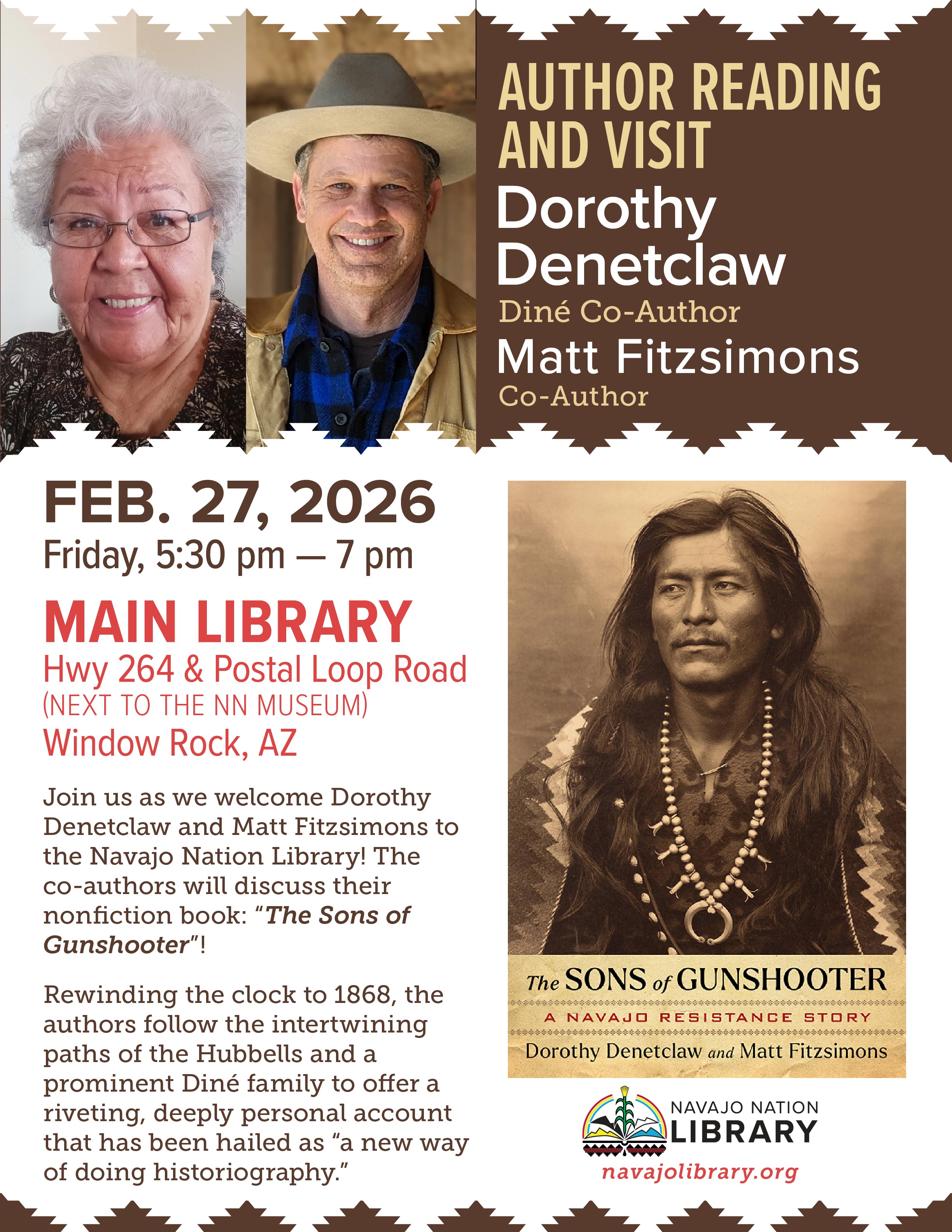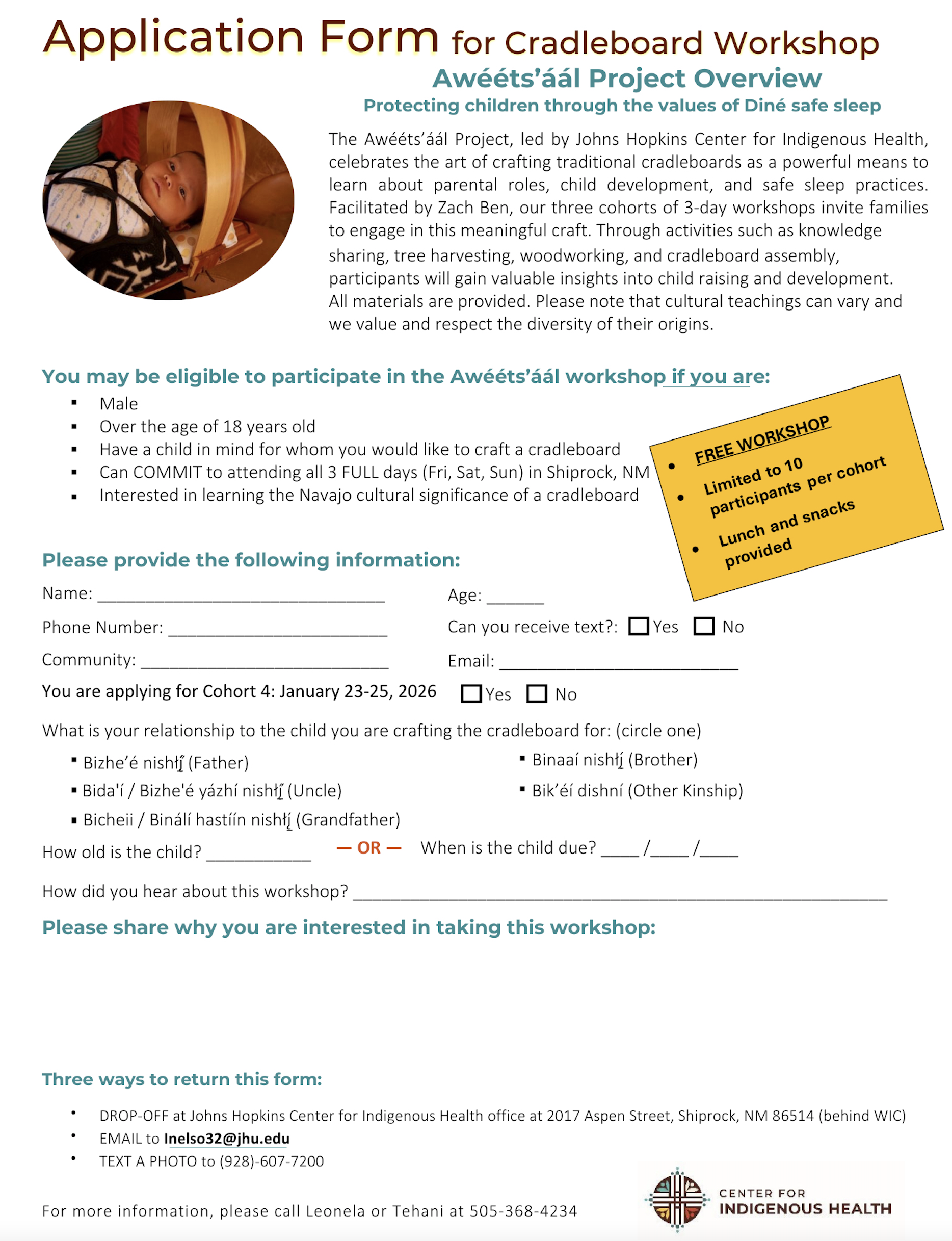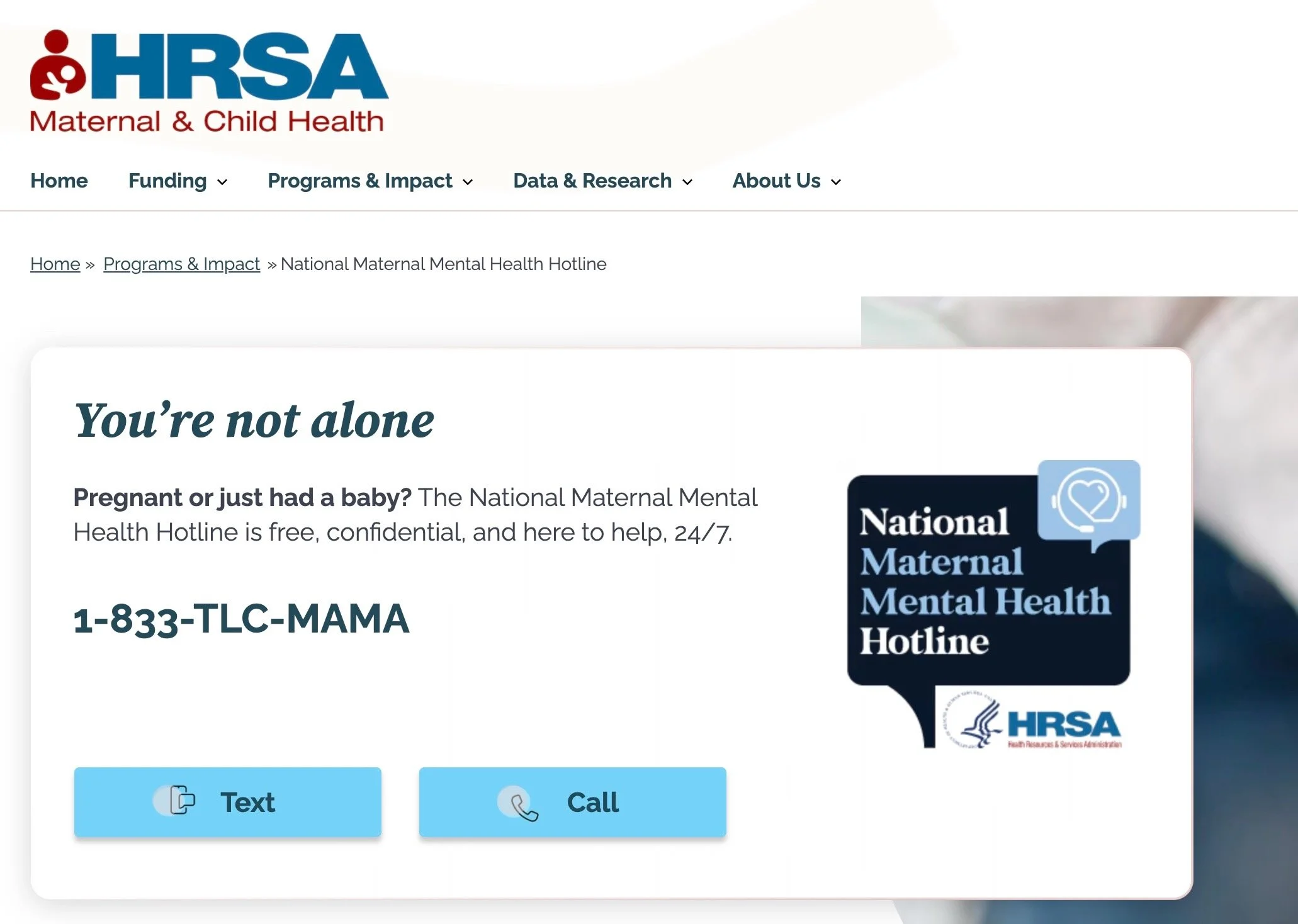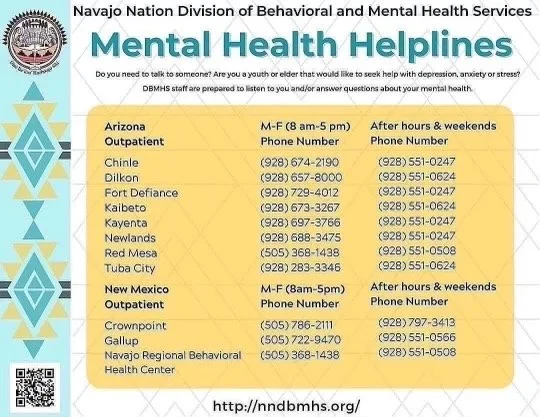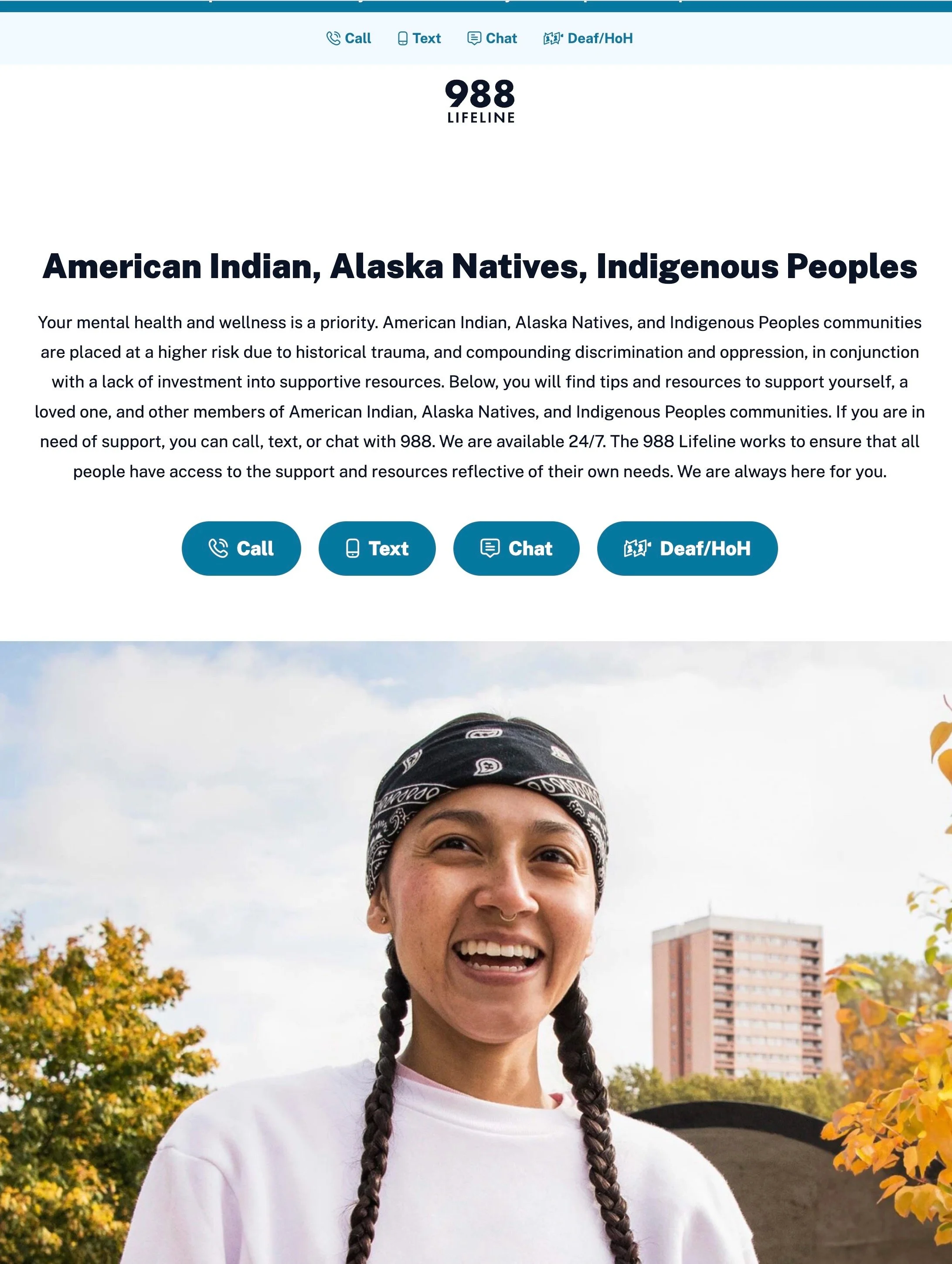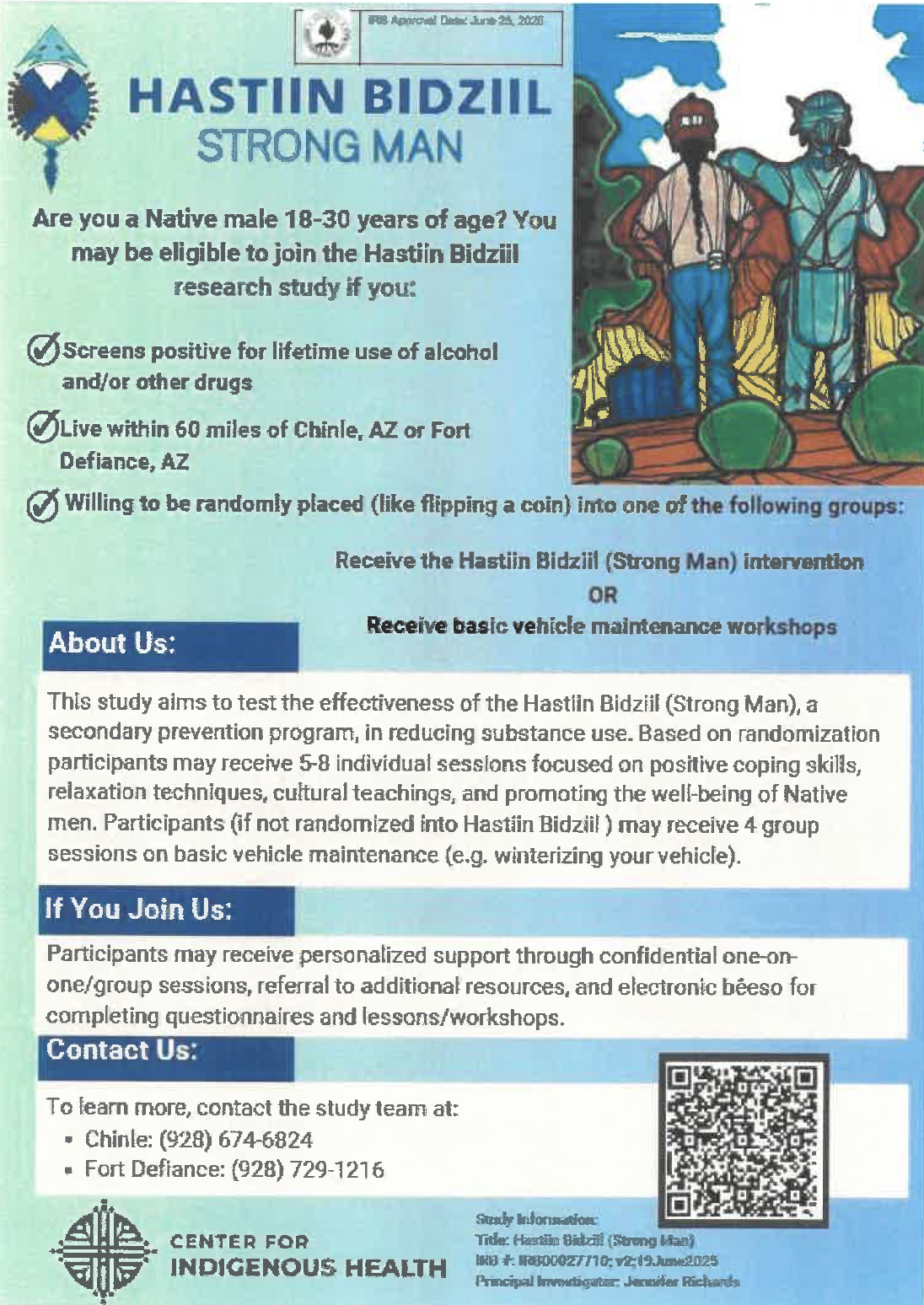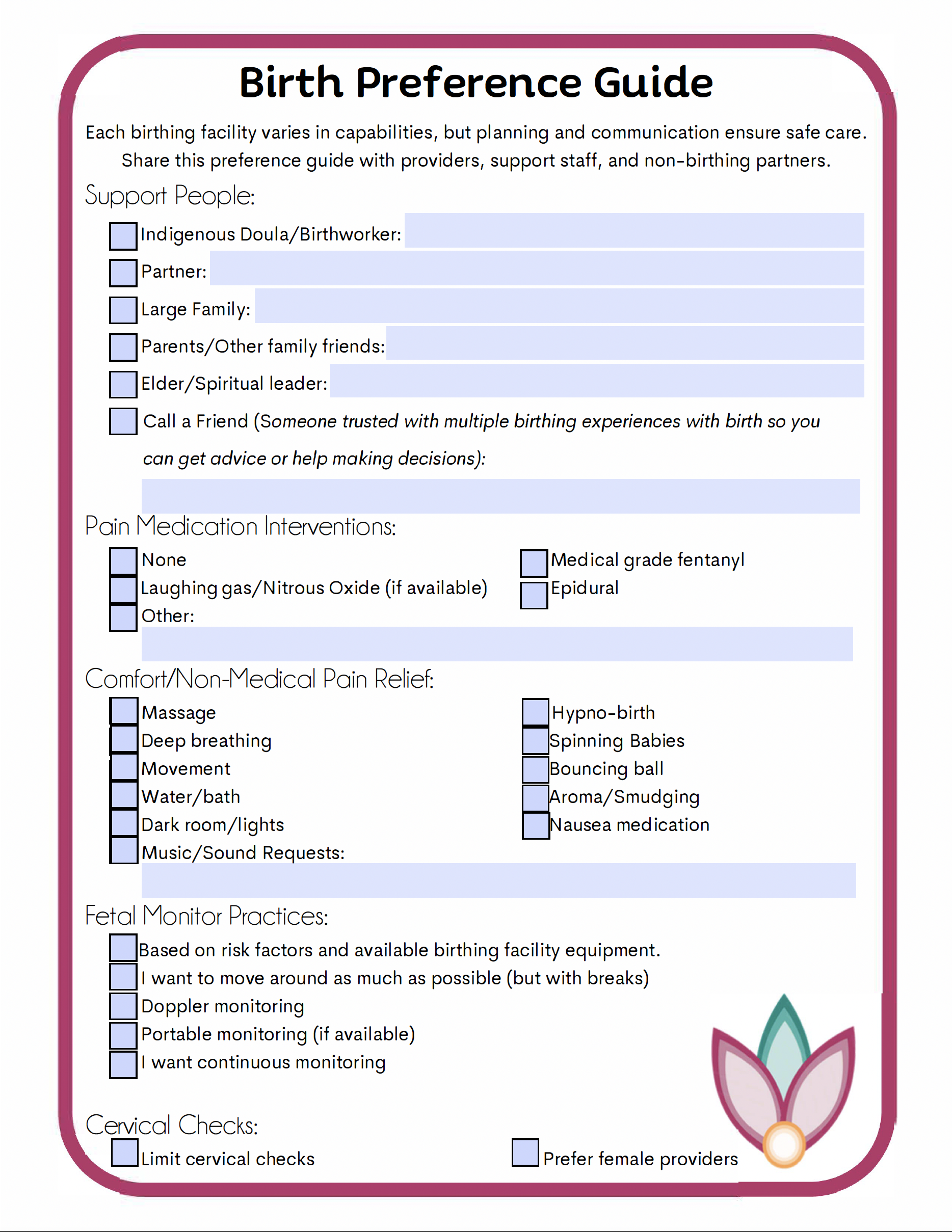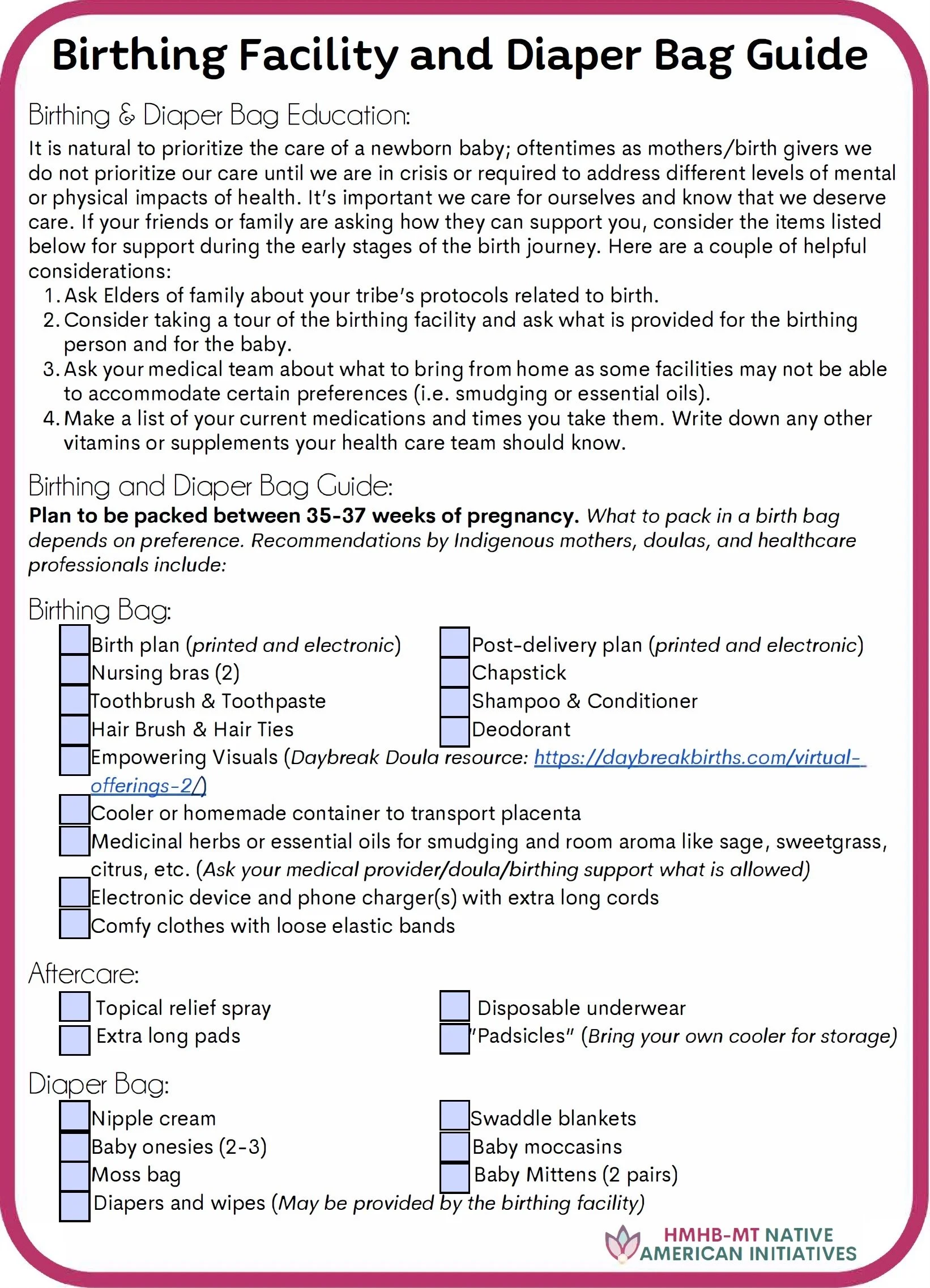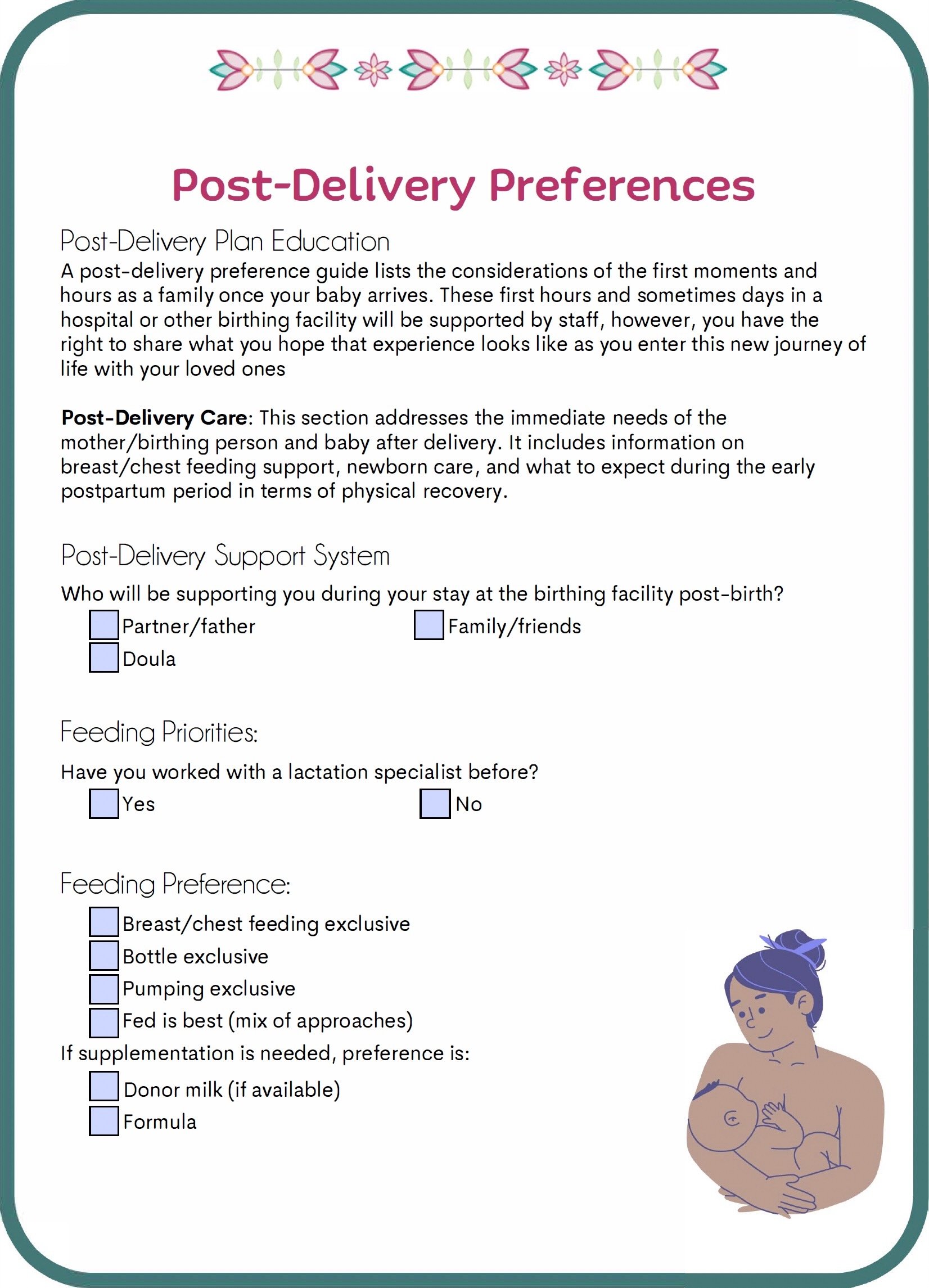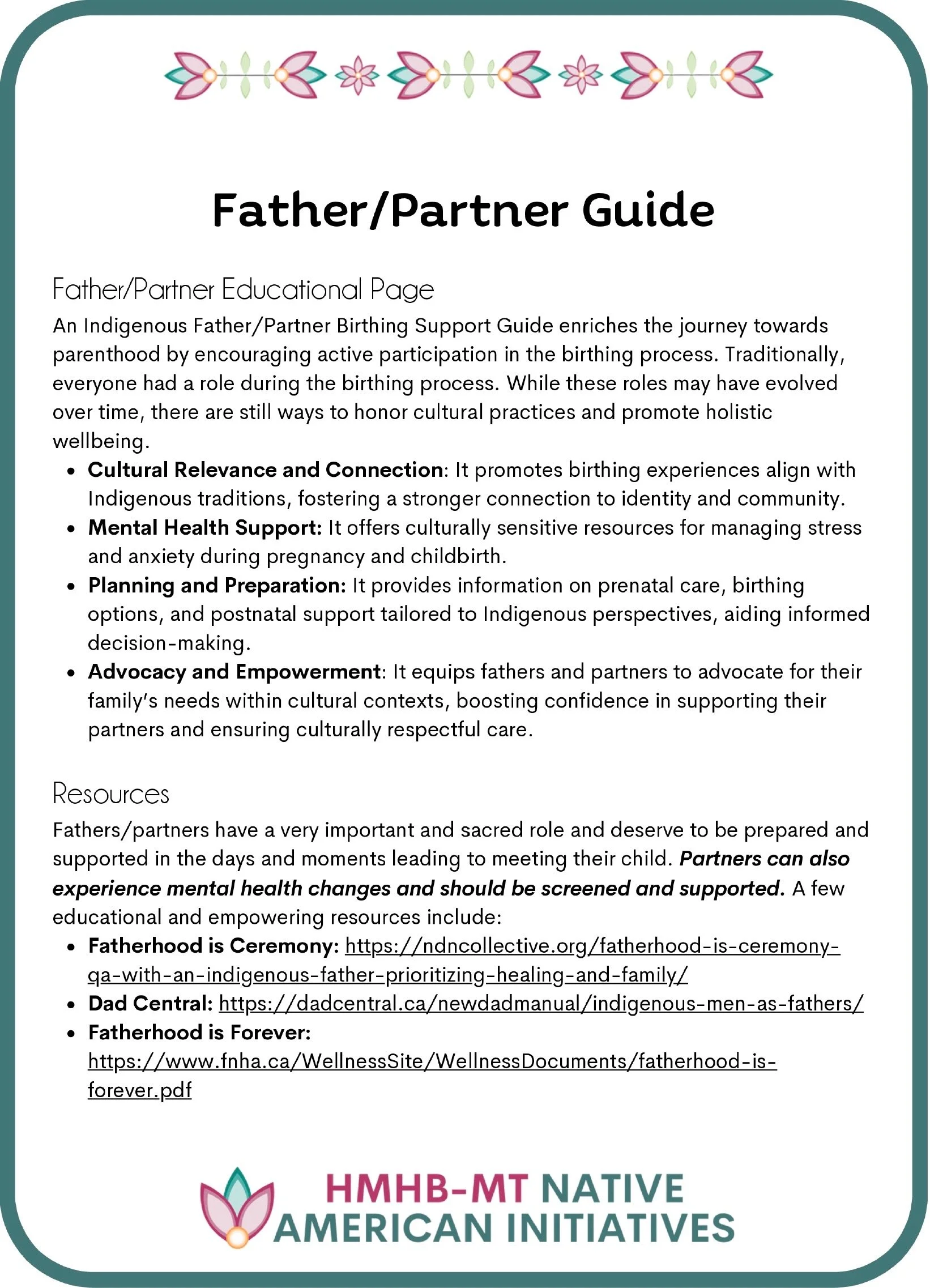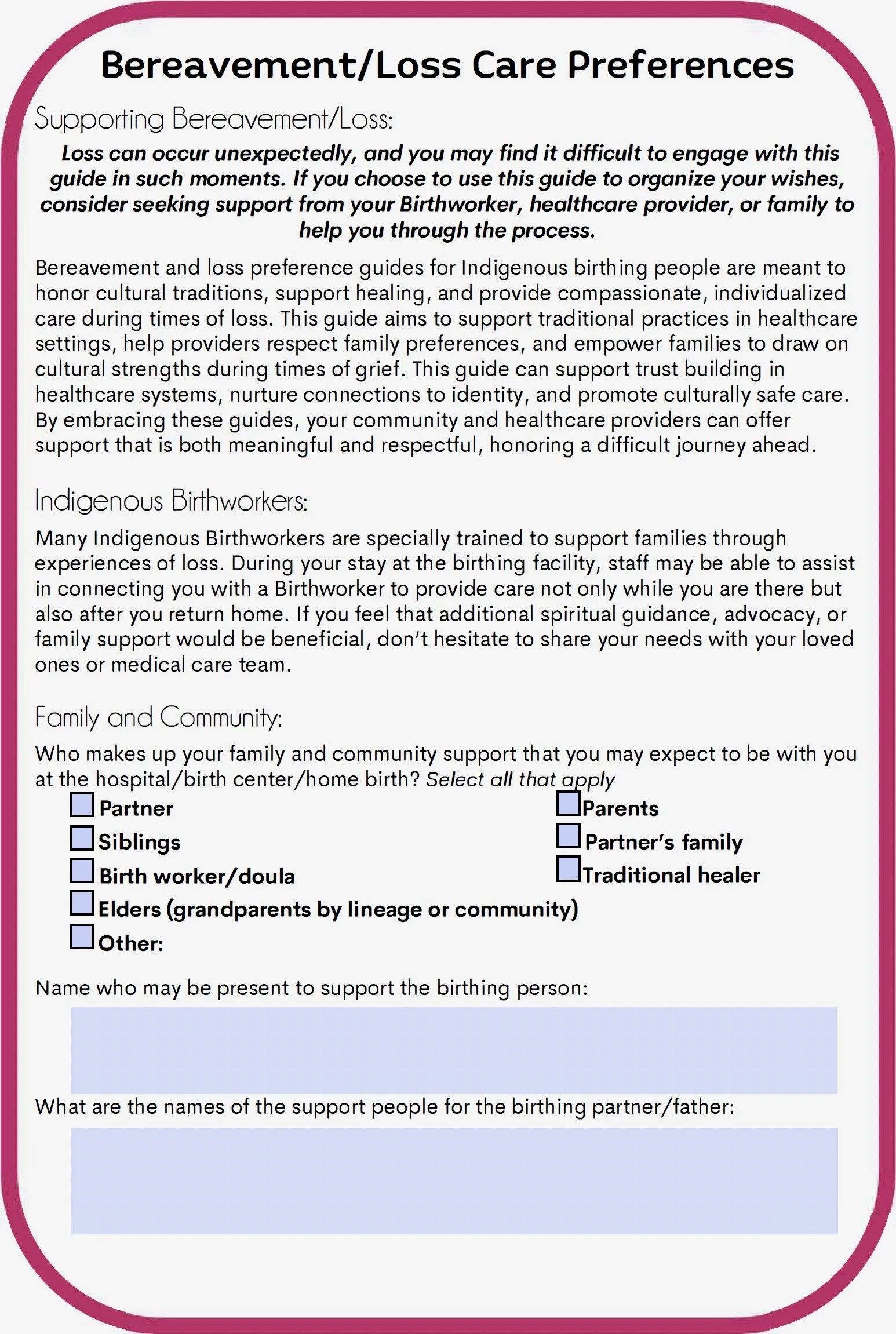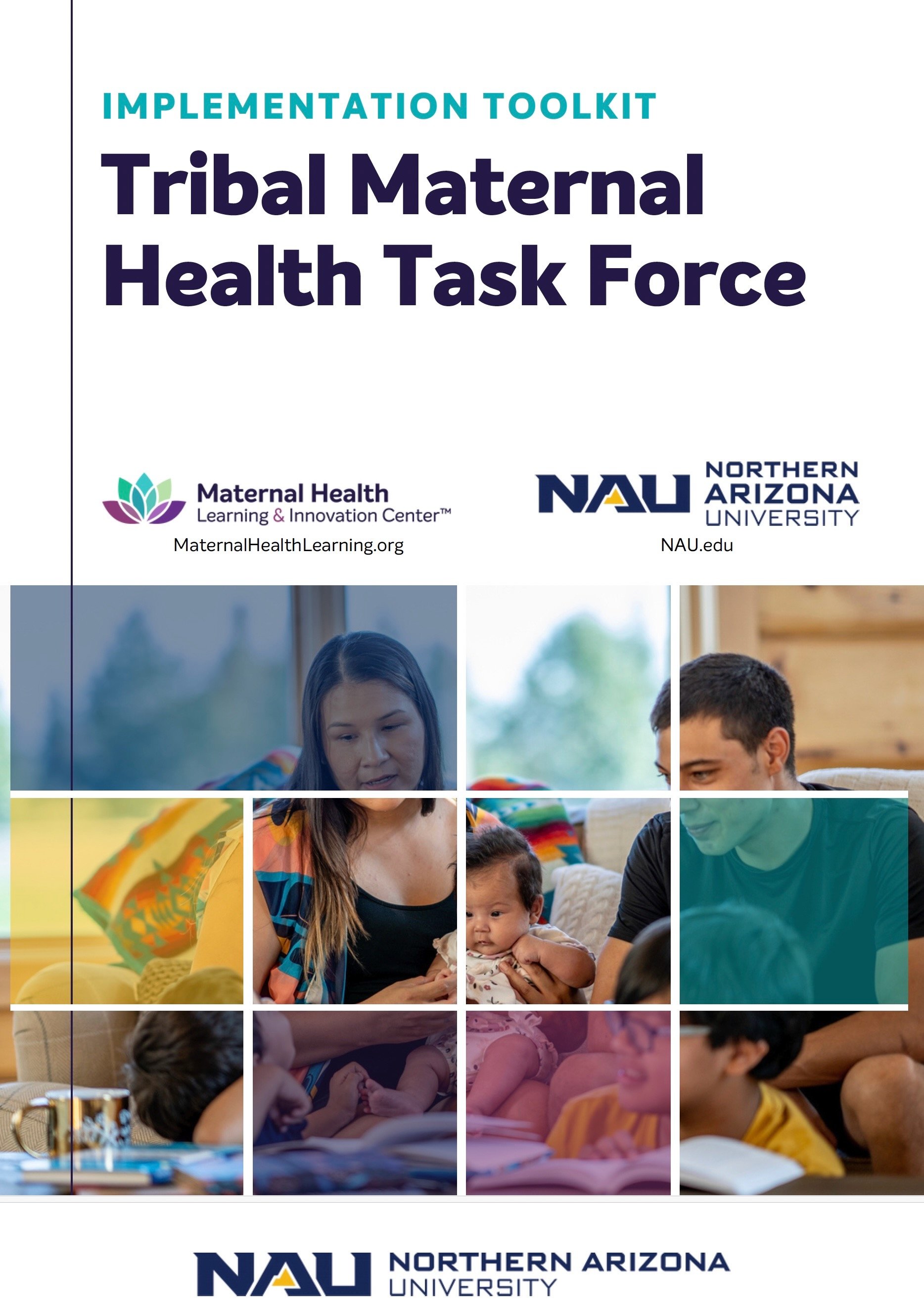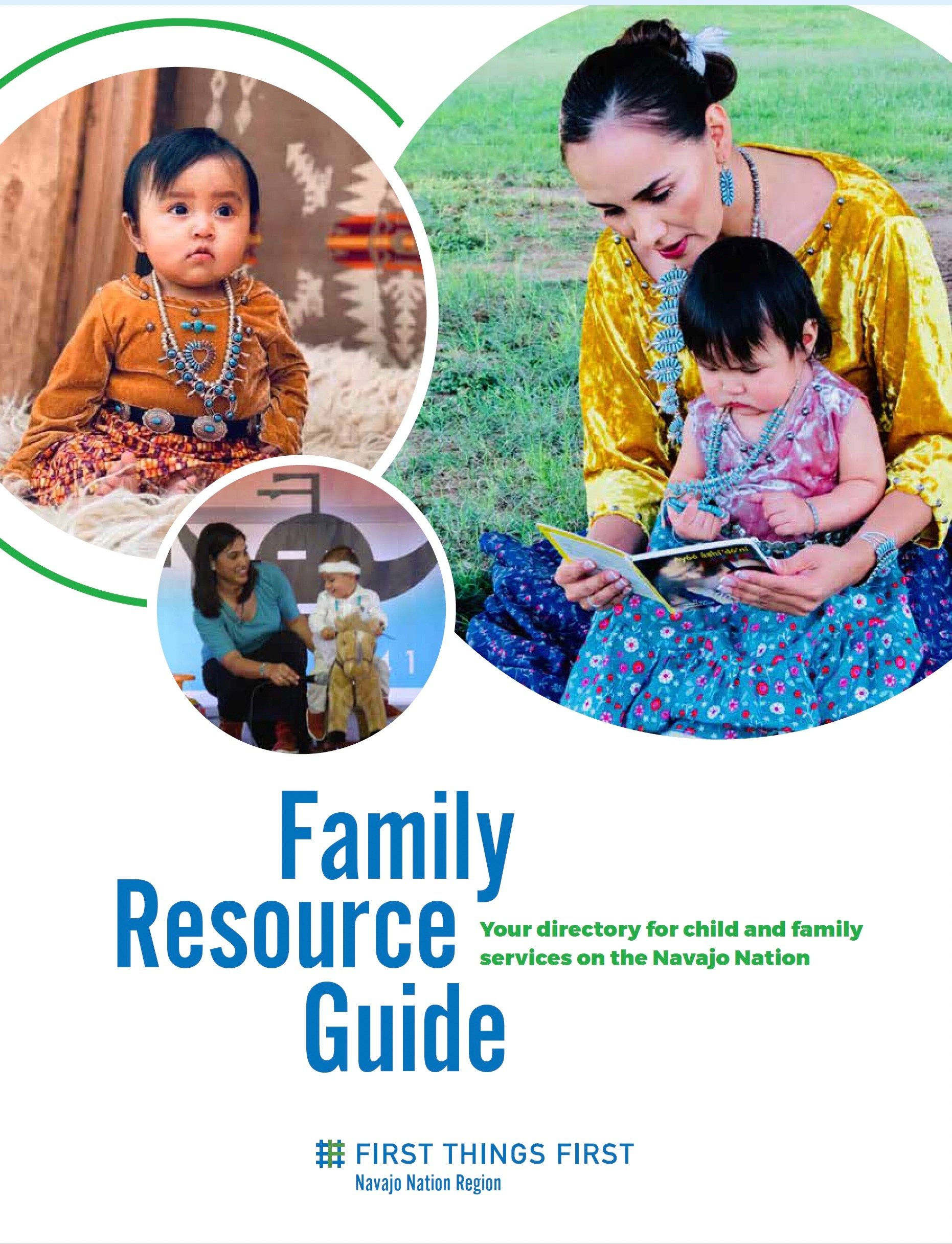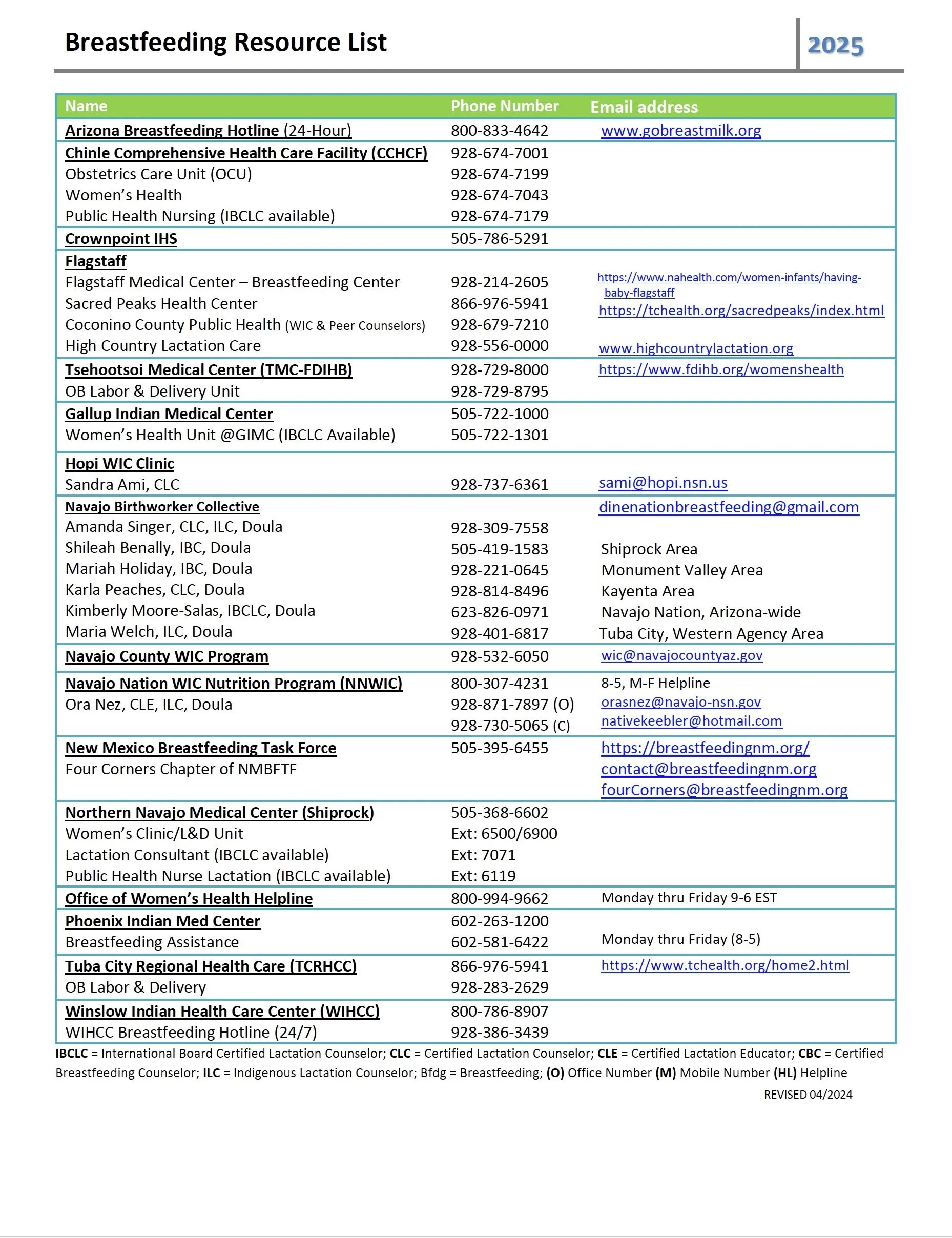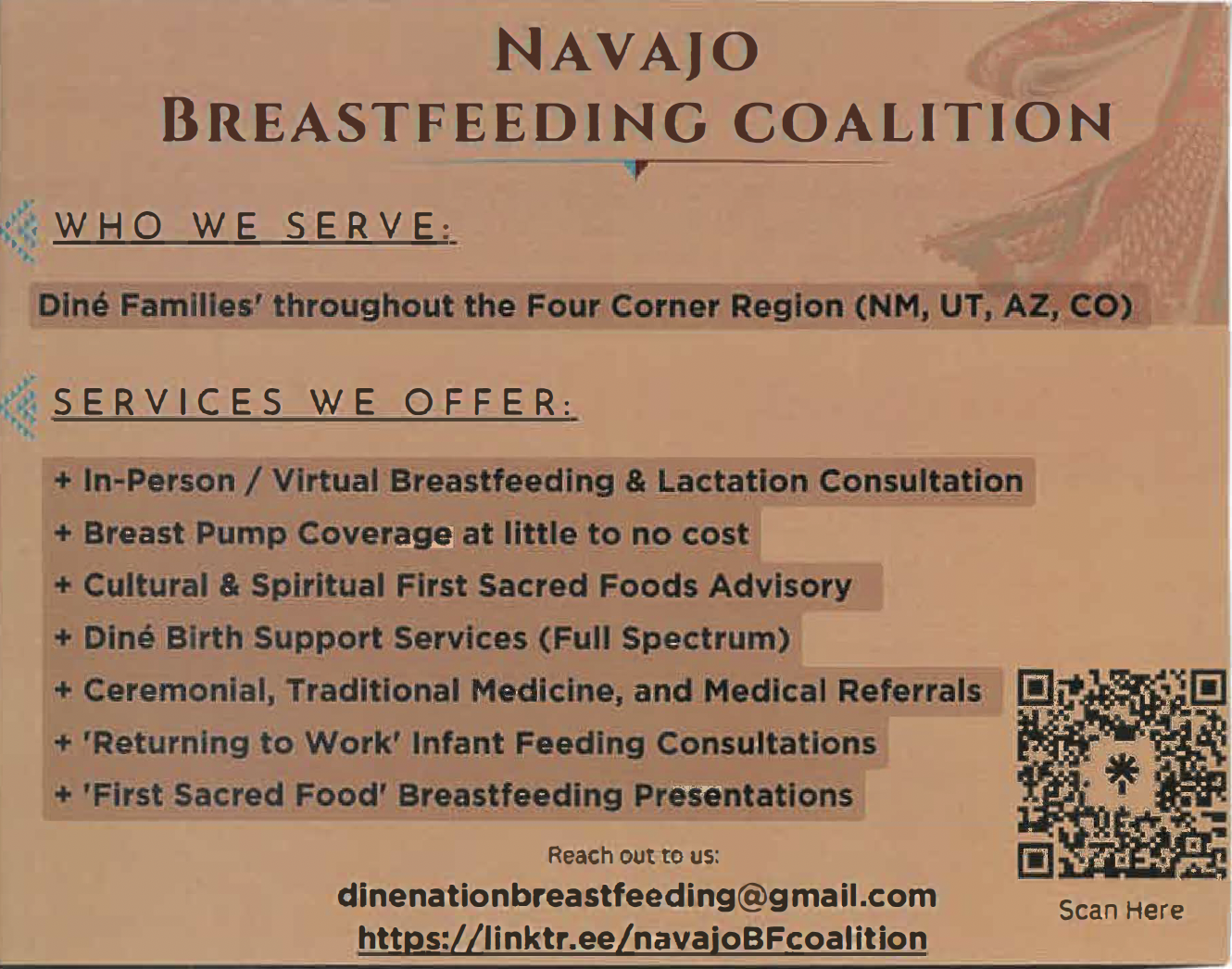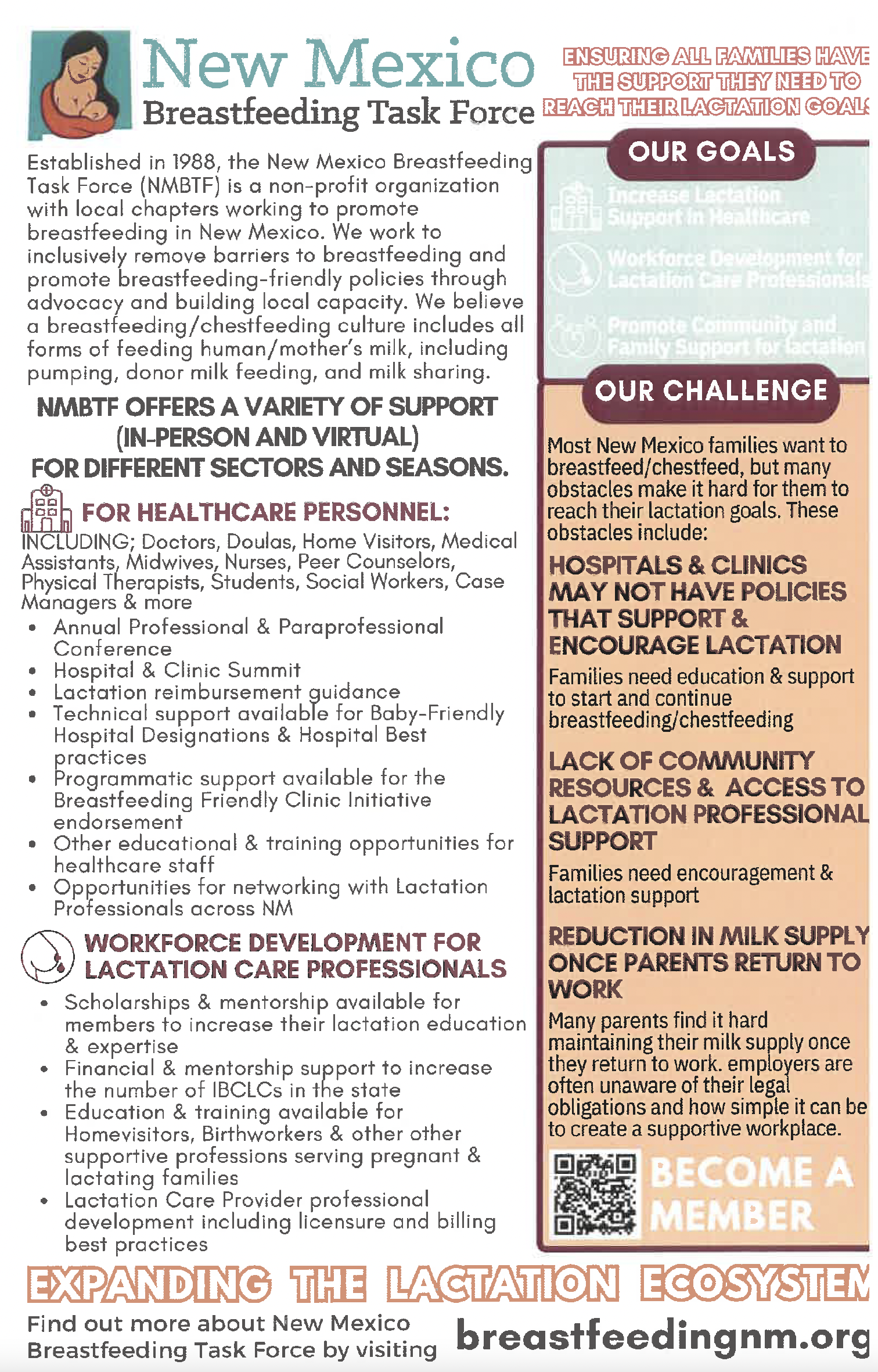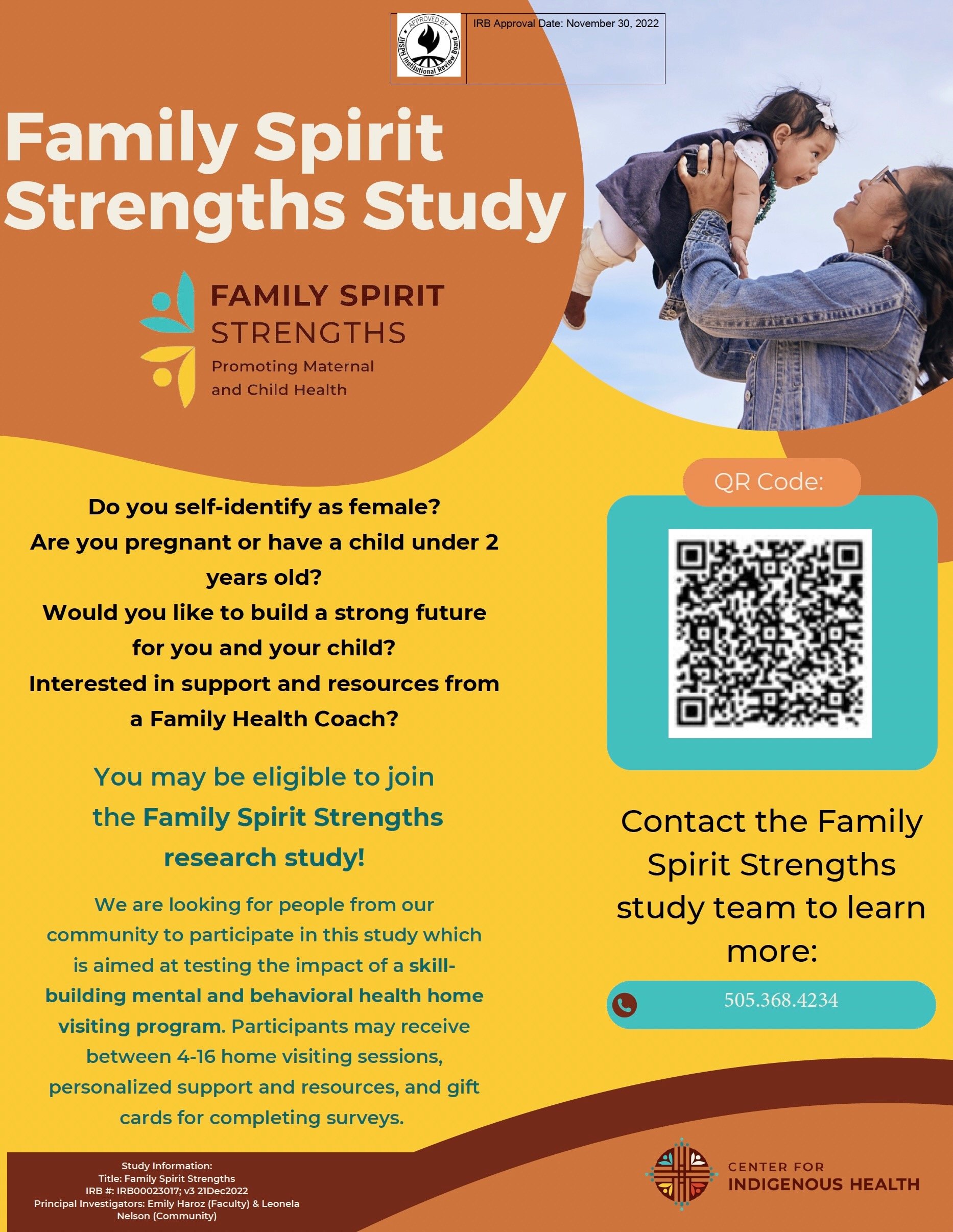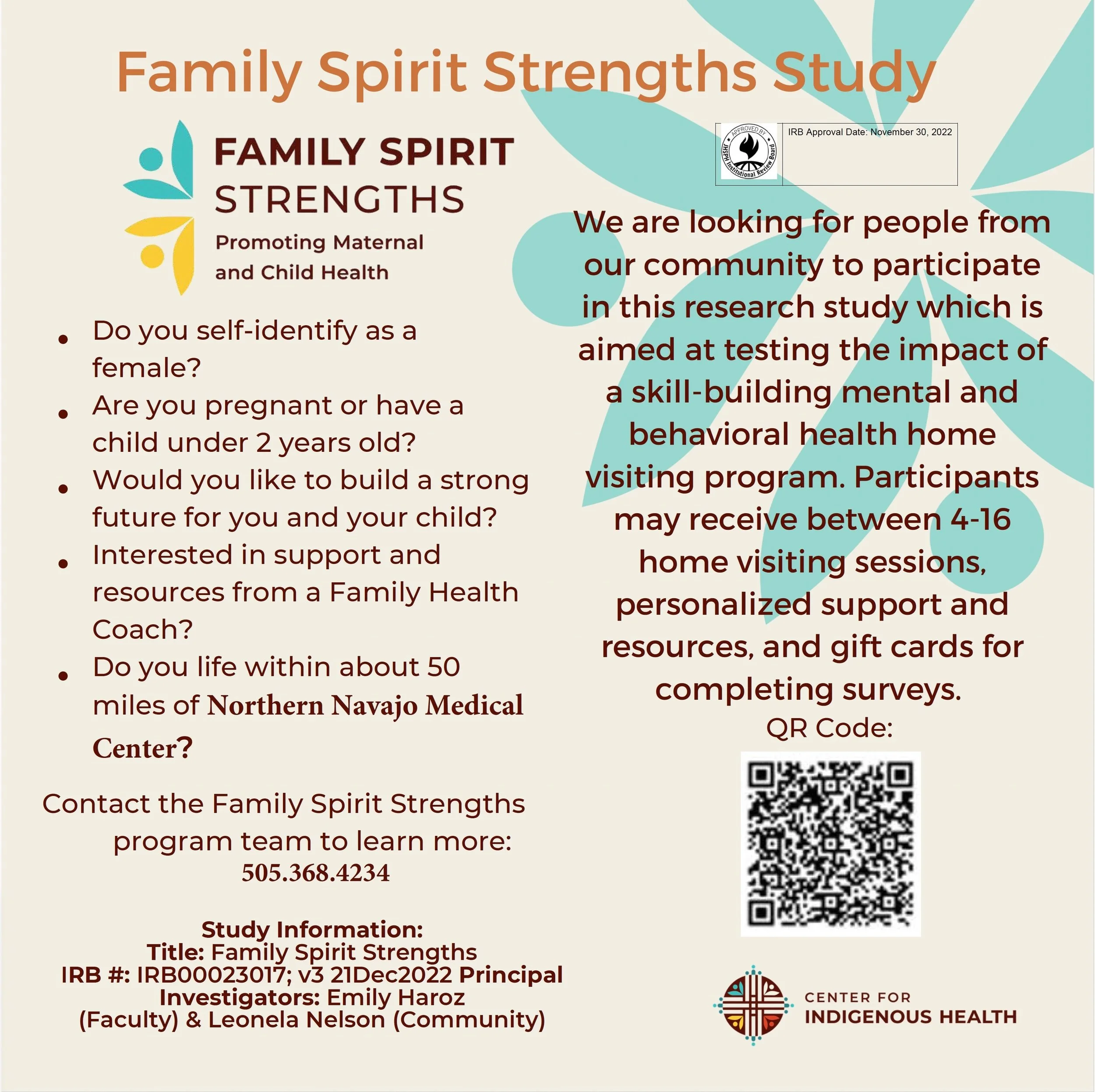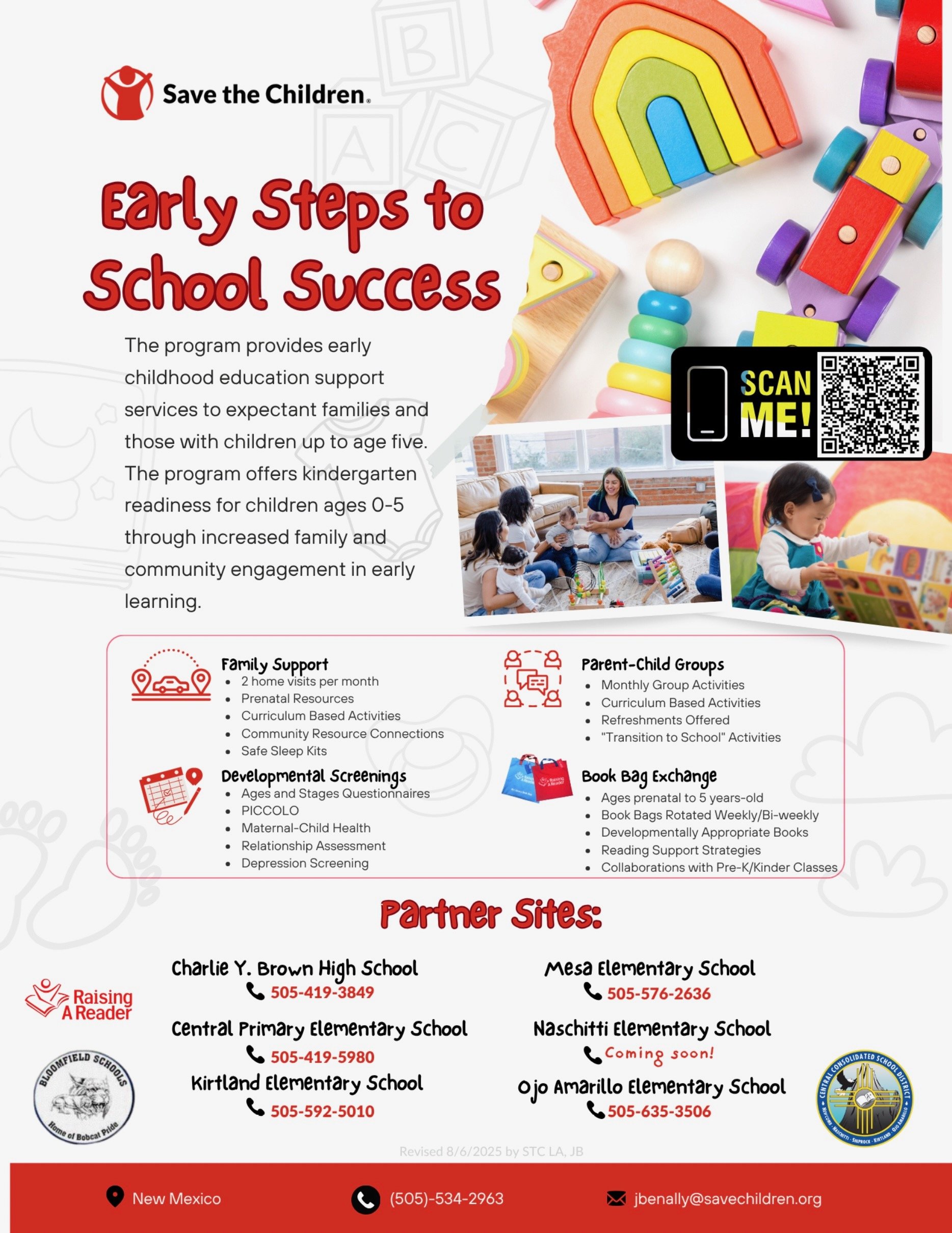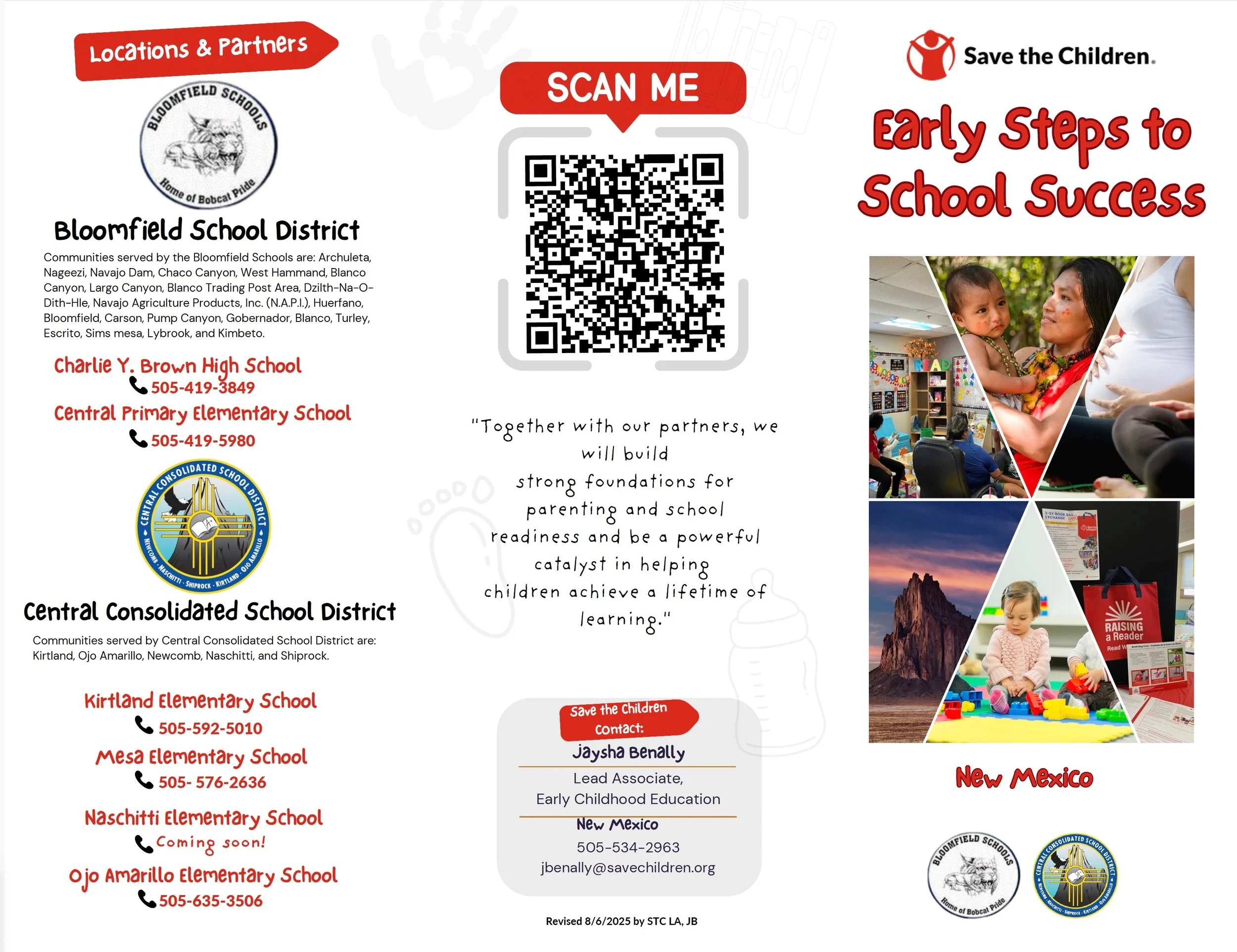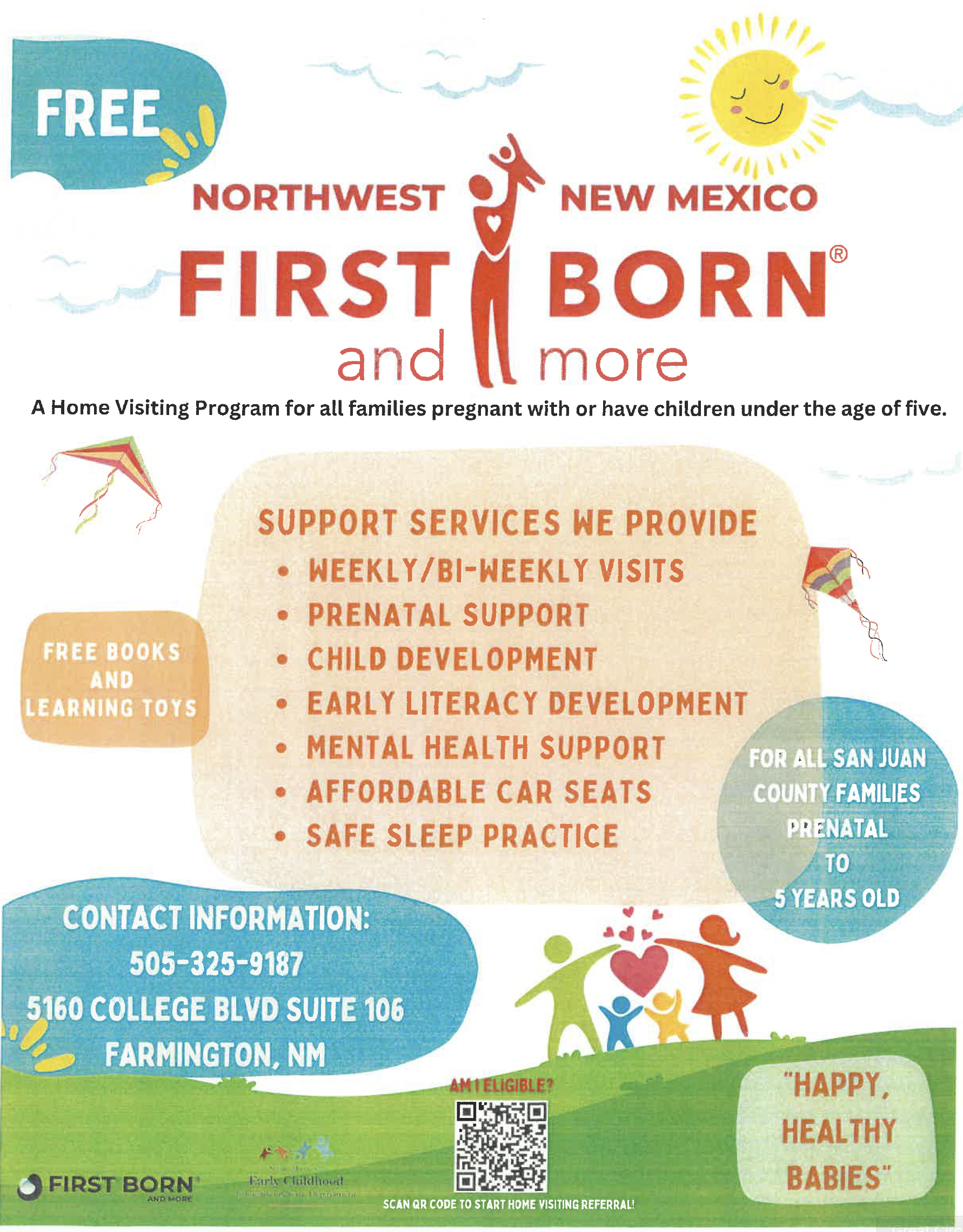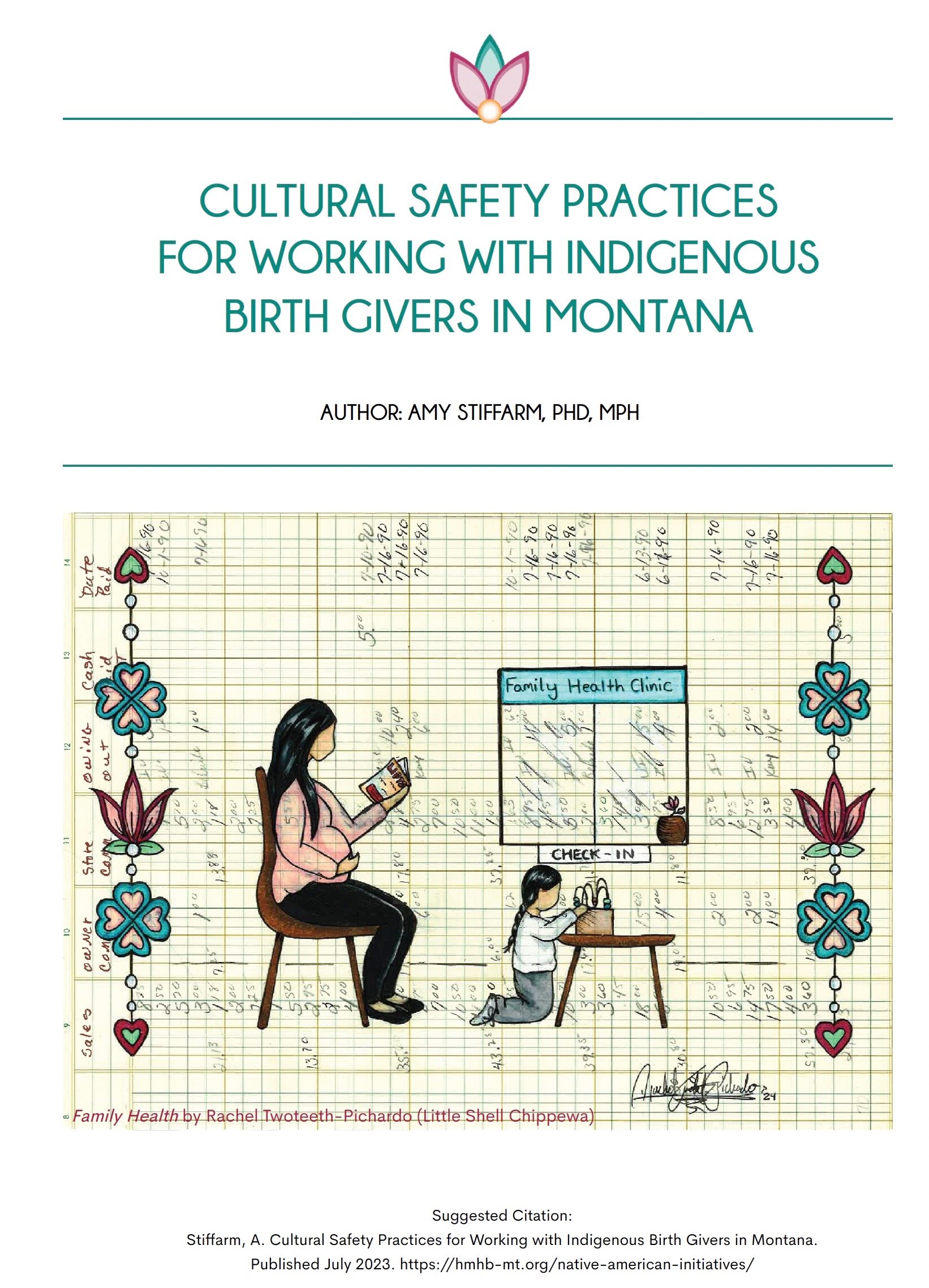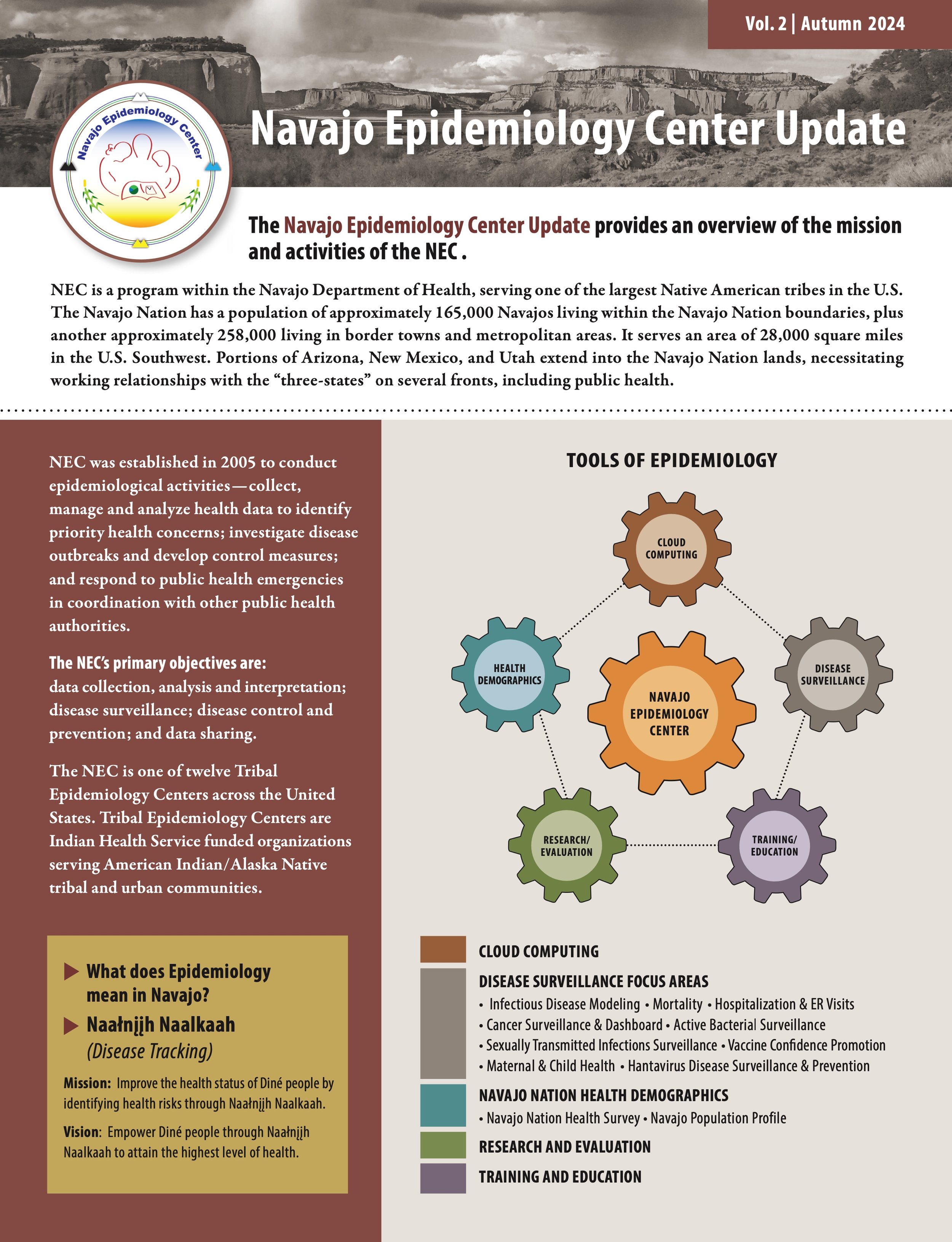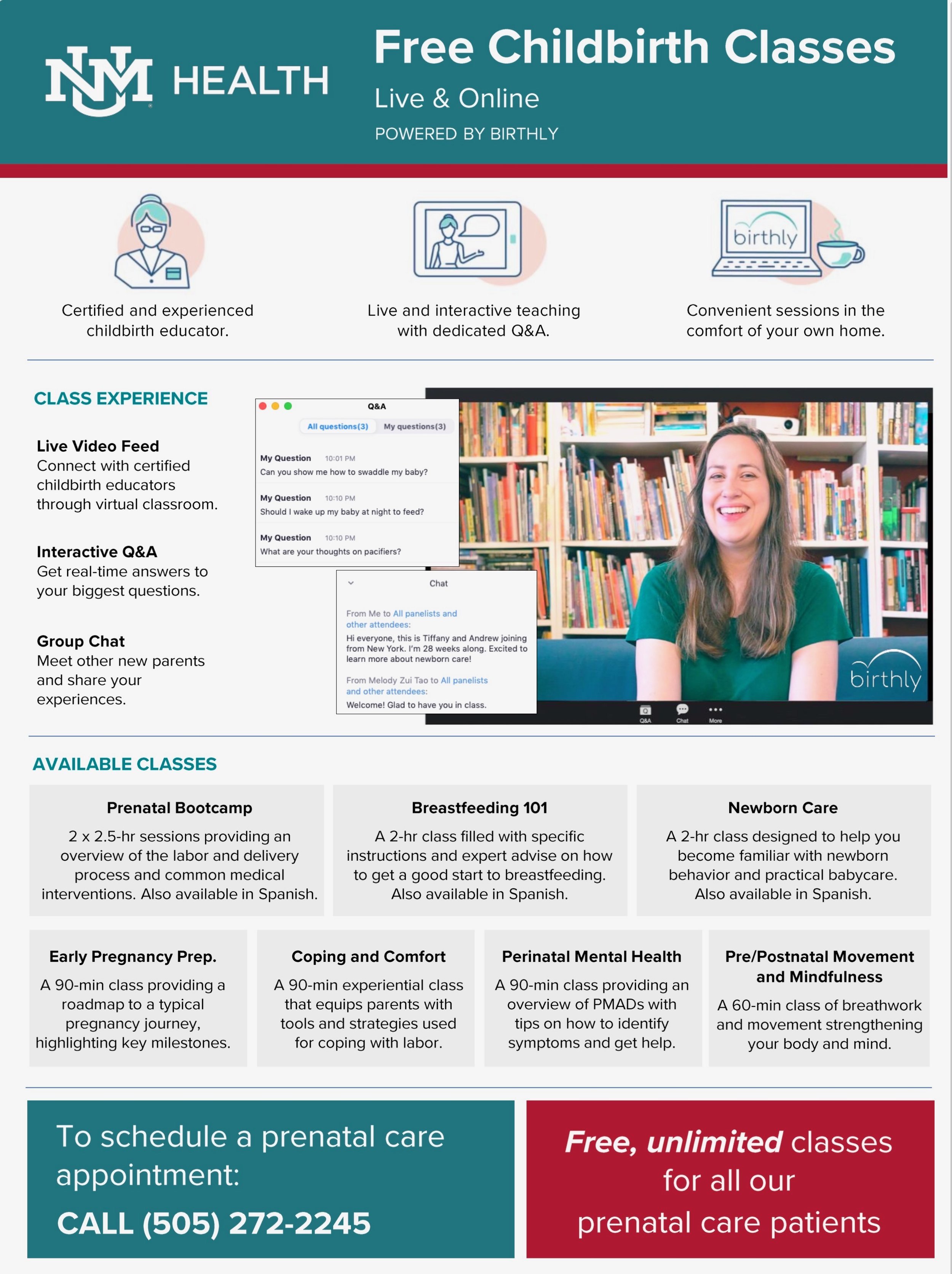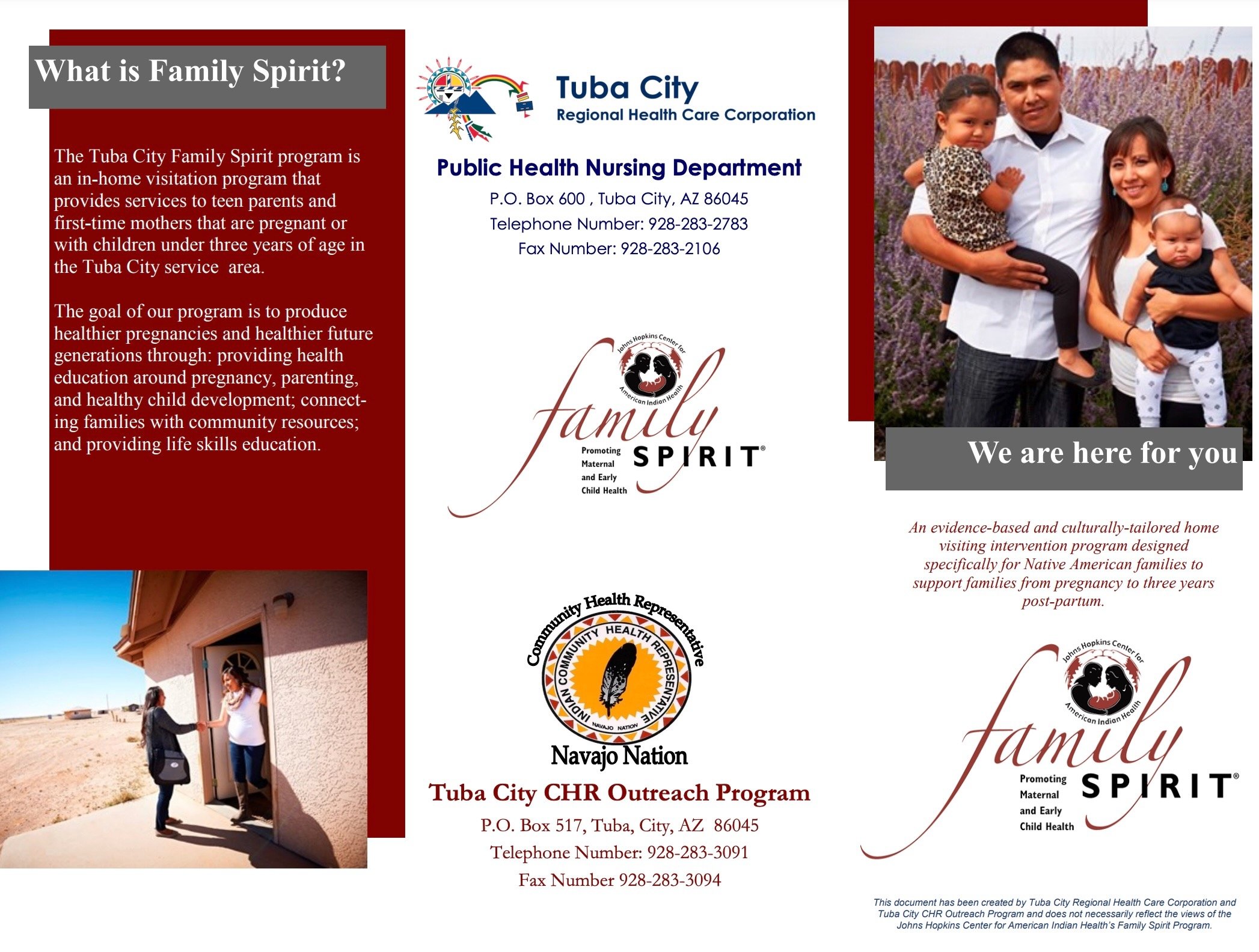Breastfeeding Asdzáán Circle: Honoring Indigenous Milk Medicine in our Communities, February 21, 2026, 1pm - 3pm at The Coffee Ship, Shiprock, NM
If you are currently breast/chestfeeding, supporting a family member who is lactating, or are pregnant and planning to feed your infant human milk, we kindly invite you to join us for this free event on February 21st, 2026! In honor of familial healing, we are offering the Shiprock community a private space to come together to share with Indigenous Lactation Counselors, Full Spectrum Doulas, birthing people, and mothers in honor of our Diné lactation & breastfeeding journeys.
Please scan the QR code to register today! Click the image to download the document to print or view.
In collaboration with the Diné College Healthy Navajo K’é Project
Child Find and Resource Fair, February 19, 2026, 10am - 2pm, Tohatchi Chapter House, Tohatchi, New Mexico
Join us for a day of learning about resources for your child and family. Screenings for hearing, vision, and development are also available, for children from 0 to 5.
For more information, contact:
Arlinda: 928/245-5206 or Doris: 505/722-5975. Please bring your own tables and chairs.
Click the image to download a PDF to print or view.
Sponsored by the Navajo Nation Office of Special Education and Rehabilitation Services.
Child Find and Resource Fair, February 24, 2026, 10am - 2pm, Red Lake Chapter House, Navajo, New Mexico
Join us for a day of learning about resources for your child and family. Screenings for hearing, vision, and development are also available, for children from 0 to 5.
Please bring your own tables and chairs.
Click the image to download a PDF to print or view.
Sponsored by the Navajo Nation Office of Special Education and Rehabilitation Services.
Website resources for the Navajo Language
Includes a comprehensive list of resources for Diné Bizaad (Navajo language) information.
Click on the document image to download a PDF of the language resources.
You are invited to the 4th Trimester Parent Retreat and Resource Fair
The Retreat, presented by the IDEA Museum of Mesa, AZ, is dedicated to friendship, connection, and the parenting journey. Visit 4thtrimesteraz.org for more information.
Click on the invitation to view a description and schedule for the Retreat.
The U of A Cooperative Extension Tribal Extension Programs invite you to attend their February “Eating Smart, Being Active” events!
View the calendar of events, and click on it to download the flyer. From there, you can click on the QR Code to learn more about each event. Events occur on: February 5, 12, 19, and 26.
The Central Consolidated School district invites you to come and enjoy a time to learn and interact with your child!
During this time, we begin with the parent-child update, circle time, story time, and ending with a parent-child activity. The meetings are a great way to help transition you and your child in preparation for the school setting environment. If you have any questions please contact a certified Parent Educator at your home site location. We hope to see you and your child soon!
The Navajo Nation Library Events Calendar for February 2026
See a wide selection of activities, presentations, movies, discussions, and other topics and activities. Click on the image to download a PDF of the calendar.
Join us at the 2026 School Health Conference!
The 3rd Annual School Health Conference is scheduled for Friday, March 20, 2026, at Twins Arrows Navajo Casino & Resort, from 8:00 am - 3:00 pm. To register, click on the attached flyer's QR code.
Join us as we welcome Dorothy Denetclaw and Matt Fitzsimons to the Navajo Nation Library!
The co-authors will discuss their nonfiction book “The Sons of Gunshooter”. Rewinding the clock to 1868, the authors follow the intertwining paths of the Hubbels and a prominent Diné family to offer a riveting, deeply personal account that has been hailed as “a new way of doing historiography.”
February 27, 2026 at the Window Rock Main Library, Hwy 264 and Postal Loop Road, from 5:30 - 7pm.
Maternal and Child Health Resources on or near the Navajo Nation
This document includes information on Maternal and Child Health resources for people living on or near the Navajo Nation. The resources listed here support Navajo people and families across communities in Arizona, New Mexico, Utah, and Colorado.
The PDF document is searchable, helping you to find accessible resources that can be beneficial. Use this document, along with the maps on the navajomch.org webpage, to find resources.
Workshop: Awééts’áál Project Cradleboard workshop
Free 3-day workshop in Shiprock, NM. This is for men/males who are 18 years of age and older. Lunch and snacks are provided.
June 23-25, 2026
Please complete the application if you’re interested and email to lnelso32@jhu.edu.
Contact information: Leonela or Tehani at 505-368-4234
HRSA Maternal Mental Health Hotline
Pregnant or just had a baby? The National Maternal Mental Health Hotline is free, confidential, and here to help, 24/7. You can get help right now. Reach out anytime - if you’re feeling overwhelmed, anxious, or if you just need someone to talk to.
Click the image for more information.
Mental Health Helplines on Navajo Nation
Do you need to talk to someone? Are you a youth or elder seeking help with depression, anxiety or stress? The mental health staff at the Navajo Nation Division of Behavioral and Mental Health Services are prepared to listen to you.
Click the image for more information.
Strong Native Hearts 988 Helpline
American Indian, Alaska Natives, and Indigenous Peoples communities are placed at a higher risk due to historical trauma, and compounding discrimination and oppression, in conjunction with a lack of investment into supportive resources.
You will find tips and resources to support yourself, a loved one, and other members of American Indian, Alaska Natives, and Indigenous Peoples communities. If you are in need of support, you can call, text, or chat with 988, available 24/7. The 988 Lifeline ensures that all people have access to the support and resources reflective of their own needs.
To learn more, click on the image to be directed to the 988 Lifeline website.
Fatherhood/Men Resources & Readings
Fatherhood is Forever- https://www.fnha.ca/WellnessSite/WellnessDocuments/fatherhood-is-forever.pdf
Dad Central- https://dadcentral.ca/
Fatherhood is Ceremony- https://ndncollective.org/fatherhood-is-ceremony-qa-with-an-indigenous-father-prioritizing-healing-and-family/
In Chinle and Fort Defiance, Arizona, there is a program called Hastiin Bidziil- Strong Man program. Please refer to the flyer for more information.
Birthing Preference Guide
Review this list of birth preferences to consider during your birthing journey. Use this to review with your healthcare providers, staff, and birthing support team.
Click on the image to download the PDF.
Birthing Facility and Diaper Bag Guide
If your friends or family are asking how they can support you, consider the items listed in this helpful document for support during the early stages of the birth journey.
Click on the image to download the PDF.
Post-delivery Preferences Guide
A post-delivery preference guide lists the considerations of the first moments and hours as a family once your baby arrives. These first hours and sometimes days in a hospital or other birthing facility will be supported by staff, however, you have the right to share what you hope that experience looks like as you enter this new journey oflife with your loved ones.
Click on the image to download the PDF.
Father/Partner Guide
This birthing support guide enriches the journey towards parenthood by encouraging active participation in the birthing process.
Click on the image to download the PDF.
Safety Plan
In the instance that you experience mental health struggles in the postpartum period or throughout any portion of pregnancy/birth/healing, please consider utilizing this safety plan, or one that is similar. A Safety Plan is used to quickly and effectively find resources and connect with your support community to support your mental well-being.
Click on the image to download the PDF.
Bereavement/Loss Care Preferences Guide
This helpful 3-page guide aims to support traditional practices in healthcare settings, help providers respect family preferences, and empower families to draw on cultural strengths during times of grief.
Click on the image to download the PDF.
Implementation Toolkit: Tribal Maternal Health Task Force
This implementation toolkit was developed as a necessary resource to address the critical need for improving Indigenous maternal health outcomes by fostering respectful, trust-based relationships with Indigenous communities. It is designed to support the creation of a Tribal Maternal Health Task Force (Tribal MHTF), which plays a key role in ensuring that Indigenous communities have the leadership, voice, and momentum in shaping maternal health solutions for enhancing the health and wellbeing of Indigenous birthing individuals and their families.
Click on the image to download a PDF.
Family Resource Guide 2020
Developed by First Things First, this is a comprehensive directory of organizations and referral agencies that provide services to children and their families throughout the Navajo Nation
Click on the image to download a PDF.
Breastfeeding Resource List 2025
The Breastfeeding Resource List is a comprehensive resource that includes hospitals, clinics, organizations, and birthworkers engaged in supporting breastfeeding, with locations on or near Navajo Nation. The list also includes a 24-hour Hotline. Contact information, including phone numbers and email addresses, is provided on this 1-page document.
Click on the image to download a PDF.
Navajo Birthworkers Collective (formerly Navajo Breastfeeding Coalition)
Services provided throughout Four Corners Region (NM, AZ, UT, CO):
In person/virtual breastfeeding/lactation consultation
Breast pump coverage at little to no cost
Cultural & Spiritual First Sacred Food Advisory
Diné Birth Support Services Return to work
Infant Feeding Consultations
Contact dinenationbreastfeeding@gmail.com or https://linktr.ee/navajoBWcollective
New Mexico Breastfeeding Task Force Goals:
Increase lactation support in Healthcare
Workforce Development for Lactation Care Professionals
Promote Community and Family Support for Lactation
Website: https://breastfeedingnm.org/
Family Spirit Strengths Study
We are looking for people from our community to participate in this study which is aimed at testing the impact of a skillbuilding mental and behavioral health home visiting program. Participants may receive between 4-16 home visiting sessions, personalized support and resources, and gift cards for completing surveys.
To learn more, scan the QR code or call (505) 368-4234.
Promoting Maternal and Child Health
Family Spirit Strengths Study
We are looking for people from our community to participate in this study which is aimed at testing the impact of a skillbuilding mental and behavioral health home visiting program. Participants may receive between 4-16 home visiting sessions, personalized support and resources, and gift cards for completing surveys.
To learn more, scan the QR code or call (505) 368-4234.
Promoting Maternal and Child Health
Early Steps to School Success
Early Steps support families with tools, state approved screening processes, ongoing assessment and goal setting, referrals, followups, and a bridge to community resources. This is a required ECECD Home Visiting Program standard to be implemented.
Click on the image to download the flyer.
Early Steps to School Success
Early Steps support families with tools, state approved screening processes, ongoing assessment and goal setting, referrals, followups, and a bridge to community resources. This is a required ECECD Home Visiting Program standard to be implemented.
Click on the image to download the brochure.
First Born Program
A home visiting program for San Juan County pregnant families and/or have children under the age of 5.
Services provided:
Weekly/Bi-weekly visits
Prenatal support
Child Development
Mental Health support
Affordable car seats
Safe sleep practice
Contact 505-325-9187
Address: 5160 College Blvd Suite 106 Farmington, NM
Publication: Toolkit: Cultural Safety Practices for working with indigenous birth givers in Montana
If you, your clinic or organization are currently providing care or services to Indigenous women and birthing people in Montana, this toolkit is for you. Examples of providers this toolkit may benefit include: Family Practitioners, Nurses, OBGYNs, Therapists, WIC Counselors, Home
Visitors, Lactation Consultants, Midwives, Doulas, Social Workers, and other individuals that seek to broaden their understanding of cultural safety to help better serve Indigenous Peoples.
Click on the image to download the PDF.
Author: Amy Stiffarm, PhD, MPH
Research study: Recruiting Licensed Practitioners on Developmental Assessments for Autism
Licensed professionals include speech-language pathologist, occupational therapist, physical therapist, interventionist, developmental pediatrician, nurse, etc. who have used standardized developmental assessment for autism with Diné children younger than 13 years old in the past 2 years.
Contact Davis Henderson at Davis.Henderson@nau.edu or AHAA@nau.edu
Research study: Recruiting Navajo Parents and Guardians of Children with Autism
Diné parents with a children with autism that is 2-12 years old, please share your experiences on autism assessments to inform recommendations to improve assessments.
Contact AHAA@nau.edu or (928) 523-5175
References: Peer-reviewed publications on Navajo Area Maternal and Child Health
Review this list of research publications on and around the Navajo Nation on topics that impact maternal and child health. This list was created by our Spring 2025 intern now graduate of the Bachelor of Science in Public Health program, Megan Yazzie.
Website: Count the Kicks
If you’re thinking about becoming pregnant or are pregnant, please download the Count the Kicks application or visit their website for an online version.
Count the Kicks is a way to monitor your baby’s movements.
Website: https://countthekicks.org/
Report: Health Profile of American Indian and Alaskan Native Population in Arizona
This report provides an health trends among American Indian and Alaskan Native people living in Arizona. This report was created by Arizona Department of Health Services.
Report: 2024 Community Health Assessment and Needs Survey- Tuba City Service Area
Report includes data on health status, needs, and priorities of the tribal communities within the Tuba City service area.
Created by the Tuba City Regional Health Care Corporation.
Community Health Division number 1-866-976-5941 and website tchealth.org
Program: Navajo WIC Nutrition Program
The Navajo Nation Women, Infants, and Children Program is always recruiting families that meet eligibility requirements.
-Are pregnant, breastfeeding, just had a baby; or
-Have a child under five years old, and
- Meet income guidelines; or
-Receive Medicaid/AHCCCS, TANF, SNAP
For more information, call 1-800-307-4231.
Report: Navajo Epidemiology Center Update 2024
Health data, disease surveillance, maternal and child health, Navajo population profile, research and evaluation, and training and education
Understand the important activities and contributions of the Navajo Epidemiology Center to the health and well-being of the Diné people.
Click on the image to the right to view the PDF.
Training: Strong Families Arizona- Learning Festival 2025
Monthly Virtual Presentations
From innovative methodologies to practical strategies, these sessions are tailored to equip you with practical tools for success. Join us and connect with fellow professionals in a stimulating virtual setting!
Click on the image to the right to view the schedule!
FREE Childbirth Classes, online in your own home!
Connect with certified childbirth educators. Ask questions in a live setting. Meet other new parents.
Classes include: Prenatal Bootcamp, Breastfeeding 101, Newborn Care, Early Pregnancy Preparation, Coping and Comfort, Perinatal Mental Health, and Pre/Postnatal Movement and Mindfulness.
To schedule an appointment, call (505) 272-2245.
January Maternal Health Newsletter
This newsletter is created by the Arizona Department of Health’s Maternal Mortality Committee. The newsletter has information on upcoming events, podcasts, data reports, policies and so much more on maternal health.
Info: Paternal Mental Health Information
During and after pregnancy, fathers can experience anxiety and depression. Learn about the causes, risk factors, and resources available for fathers.
Materials created by the Maternal Mental Health Leadership Alliance, visit their website at mmhla.org.
Info: Autism Support, Community, and Education (ASCEND)
Autism Support, Community, and Education in the Navajo Nation through the Diné Parents Taking Action (ASCEND) program.
This evidence-based parent education and training initiative, known as Parents Taking Action, is specifically designed by and for Diné families with children on the autism spectrum, in partnership with Tuba City Regional Health Care. Call (928) 523-5175, or email to ASCEND@nau.edu
Eligibility:
Diné parents and guardians of a child with autism.
The child is between 2-12 years old.
Diné parents and guardians who think their child may have autism are also welcome to participate.
Program Features:
Family Advisor Meetings: Regular meetings with a Family Advisor (another Diné family member who has a child with autism) in person at Tuba City Regional Health Care, another community location, or virtually via Zoom or another video conference platform. Internet hotspots are available upon request.
Educational Lessons: 12 comprehensive lessons about autism and parenting a child with autism, covering topics such as understanding the autism diagnosis and evidence-based approaches to managing behaviors.
Communication Support: Access to communication support tools (e.g., verbal communication, AAC devices) with instruction from a certified speech and language pathologist.
Evaluation Participation: Participation in three surveys about your use of developmental services and your child's functioning, each taking about 45 minutes.
Focus Groups/Interviews: Opportunities to provide feedback on the program through focus groups or interviews.
Time Commitment:
Total commitment for lessons and evaluation is between 15 to 23 hours.
Participants will receive $140 for their involvement.
Info: Tuba City Family Spirit program: Home visits
The Tuba City Family Spirit program is an in-home visitation program that provides services to teen parents and first-time mothers that are pregnant or with children under three years of age in the Tuba City service area. The goal of our program is to produce healthier pregnancies and healthier future generations through: providing health education around pregnancy, parenting, and healthy child development; connecting families with community resources; and providing life skills education. Click on linked image to download or view the brochure.
Tuba City CHR Outreach Program
P.O. Box 517, Tuba, City, AZ 86045 Telephone Number: 928-283-3091
Learn more and check out their video at: https://cih.jhu.edu/programs/family-spirit-home-visiting-program/
Info: Understanding a Health Care Power of Attorney
Who will speak for you if you're unable to? Who will communicate your preferences to healthcare providers and caregivers if you can't? Choosing a health care power of attorney to make medical decisions on your behalf in the event of a serious health condition, accident or emergency is an important step in planning ahead for your healthcare.
The process of documenting your wishes does not need to be burdensome and not all decisions need to be made today. If you only do one thing in your advance care planning process this year, choose your person to be your voice if you are not able to express your wishes. Then document your election and register your advance directives in the Arizona Healthcare Directives Registry (AzHDR) to help ensure your decisions are honored and your treatment is guided by your wishes. Click on linked image to download or view the brochure.
Learn more at: AzHDR.org
Info: Diaper assistance is back!
Who qualifies? Each pre-newborn to 17-year old child in a household, and households whose income is at or below 200% of the Federal Poverty Level (FPL). What should I bring? A parent or guardian I.D., the child’s birth certificate or document with parent and child’s names, and income verification. Sign up by contacting CCHHS Social Services at (928) 679-7272 in Flagstaff area / (928) 645-9400 in Page area or by visiting one of our offices, located in either Flagstaff or Page, Arizona.
Visit https://bit.ly/42nTDLB to learn more about CCHHS Social Services programs and services.
